Patagonia is fantastic nature, endless expanses, fierce winds, and rugged landscapes.
A vast region at the end of the world, which is, without a doubt, gigantic in its beauty.
But today, it’s not just about nature, but mostly about heartfelt encounters.
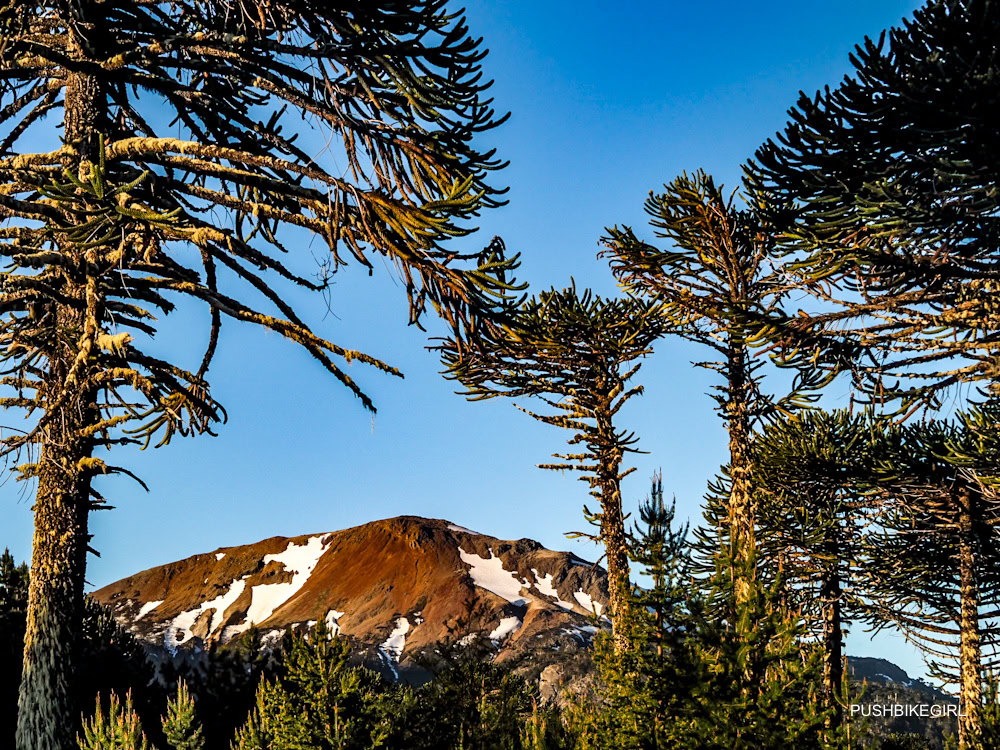

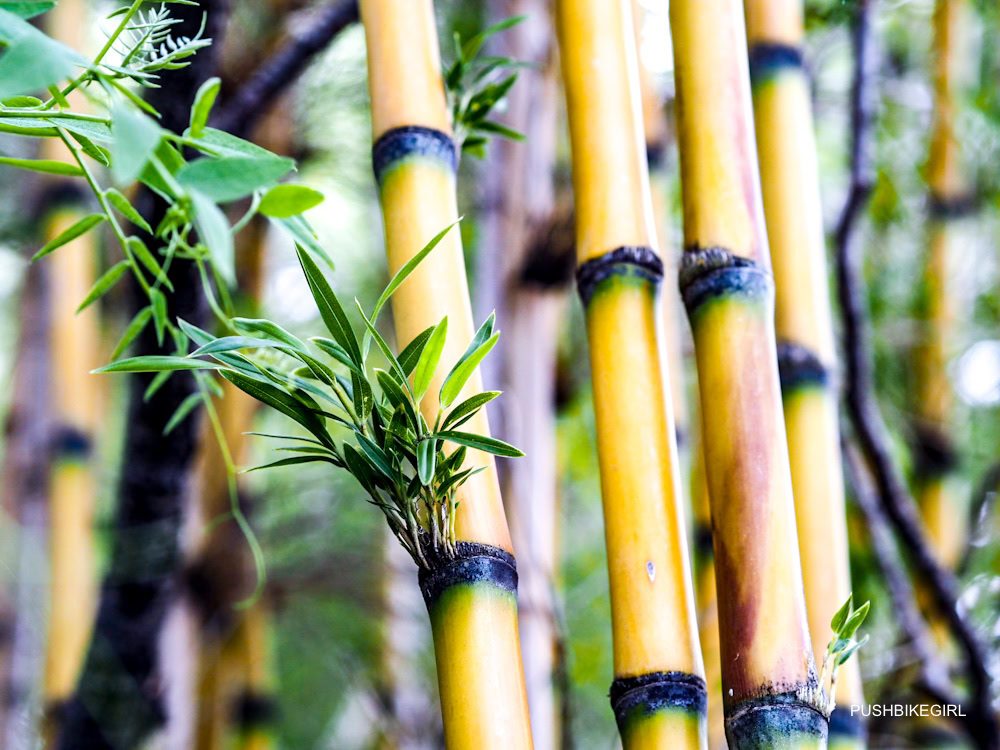
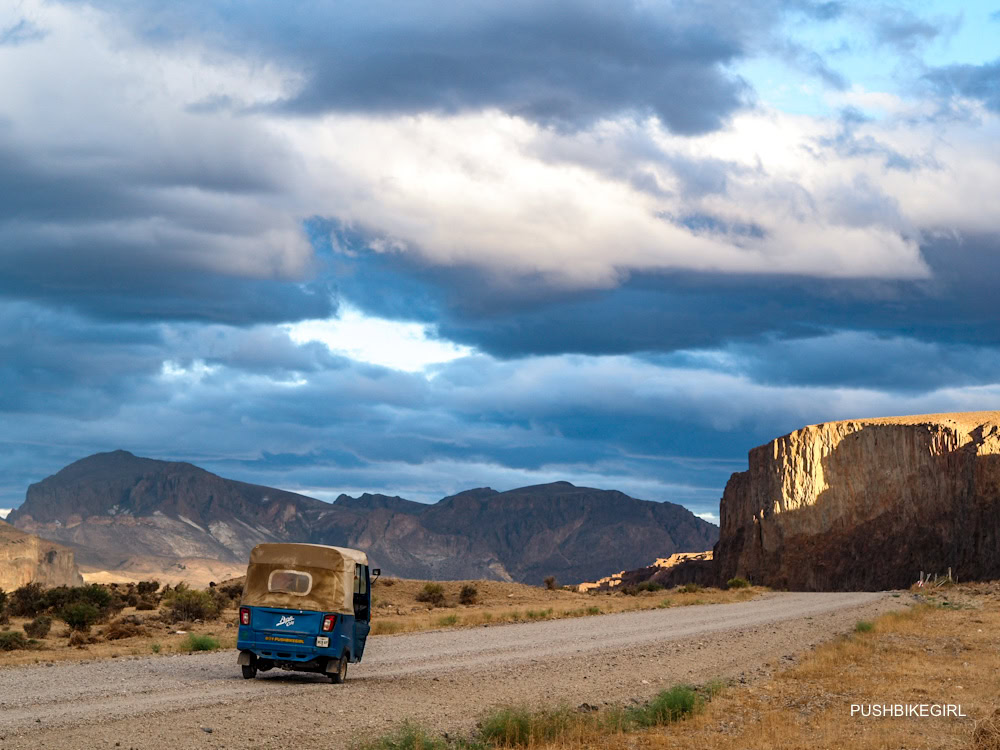


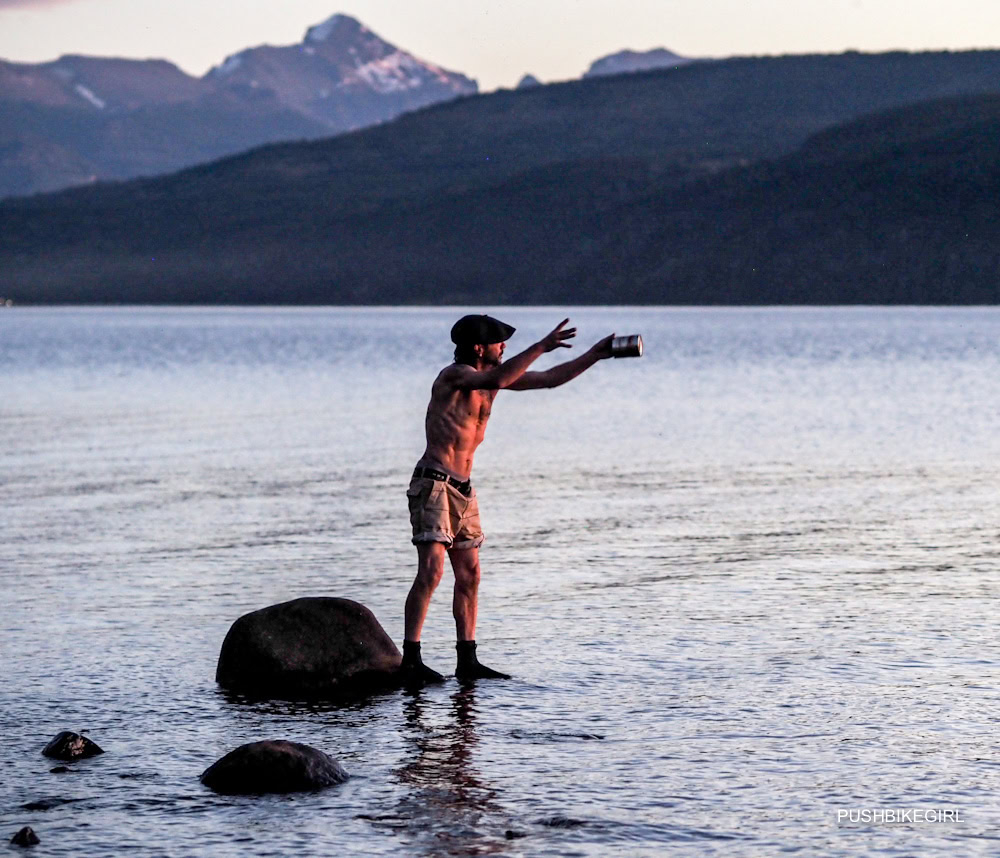
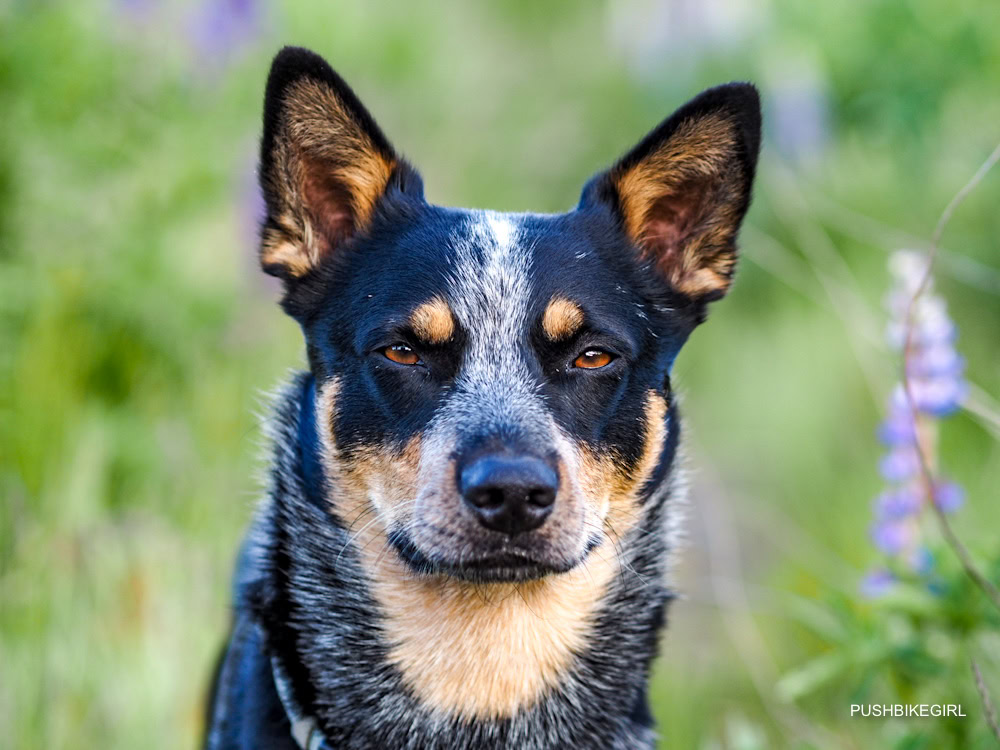
Today I want to tell you how important interesting people are to me. Because often, I find new acquaintances to be far more, exciting, and even much more important for my well-being than breathtaking landscapes, which I have probably seen somewhere else in a similar form.
Don’t get me wrong, of course the eternal vastness is impressive, and I love wide open spaces more than anything, but in the end, I remember meaningful encounters much longer.
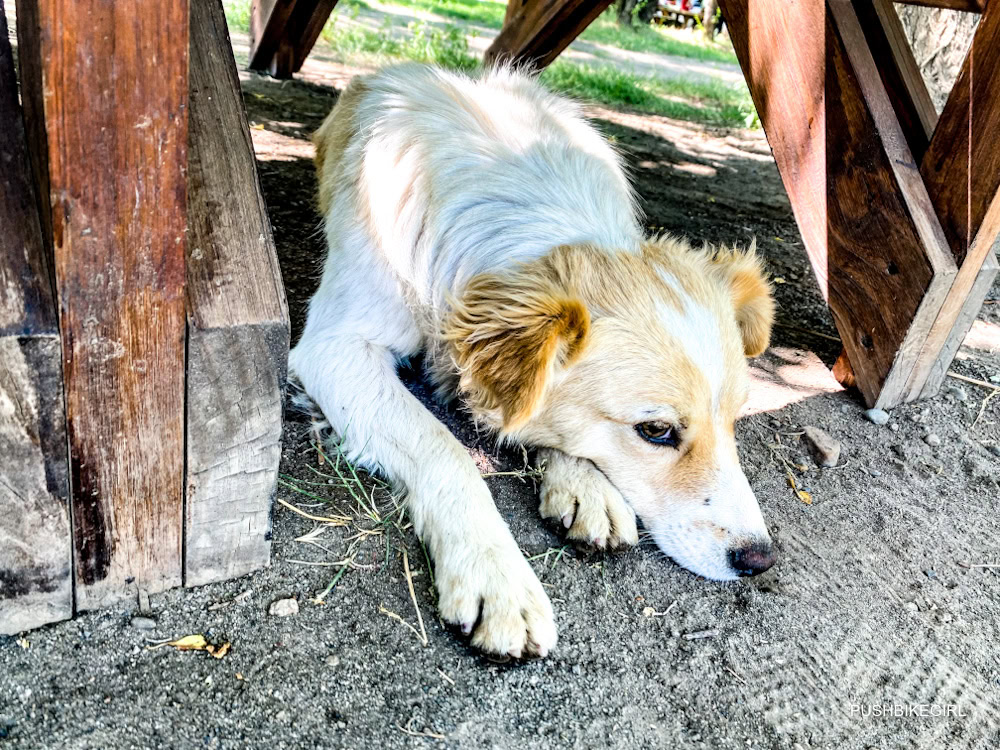
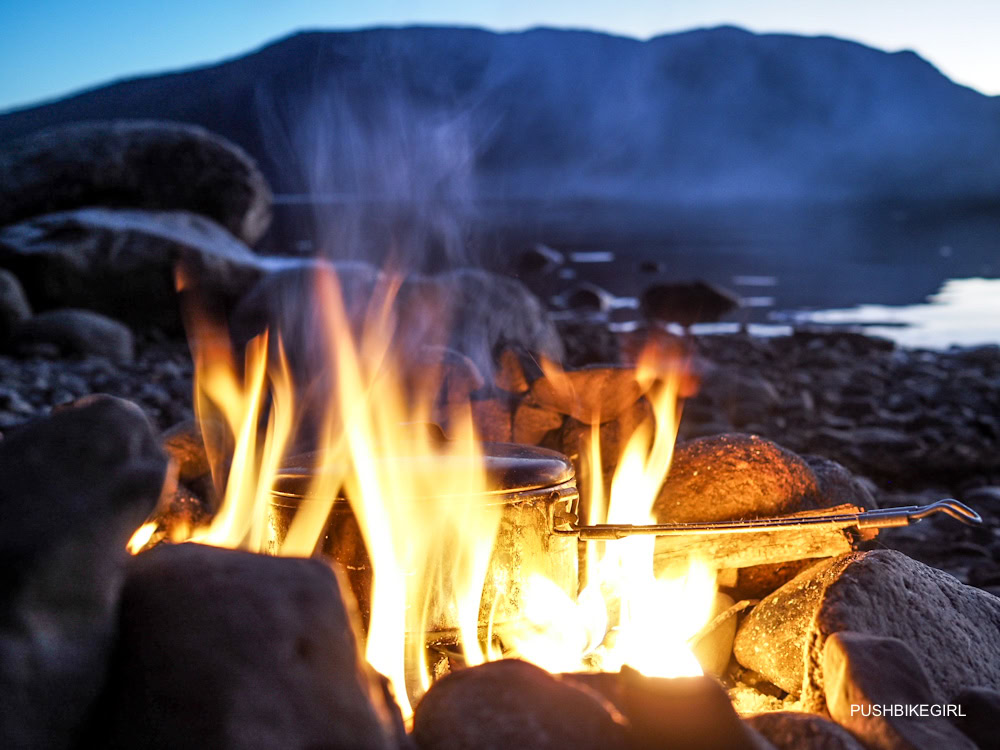
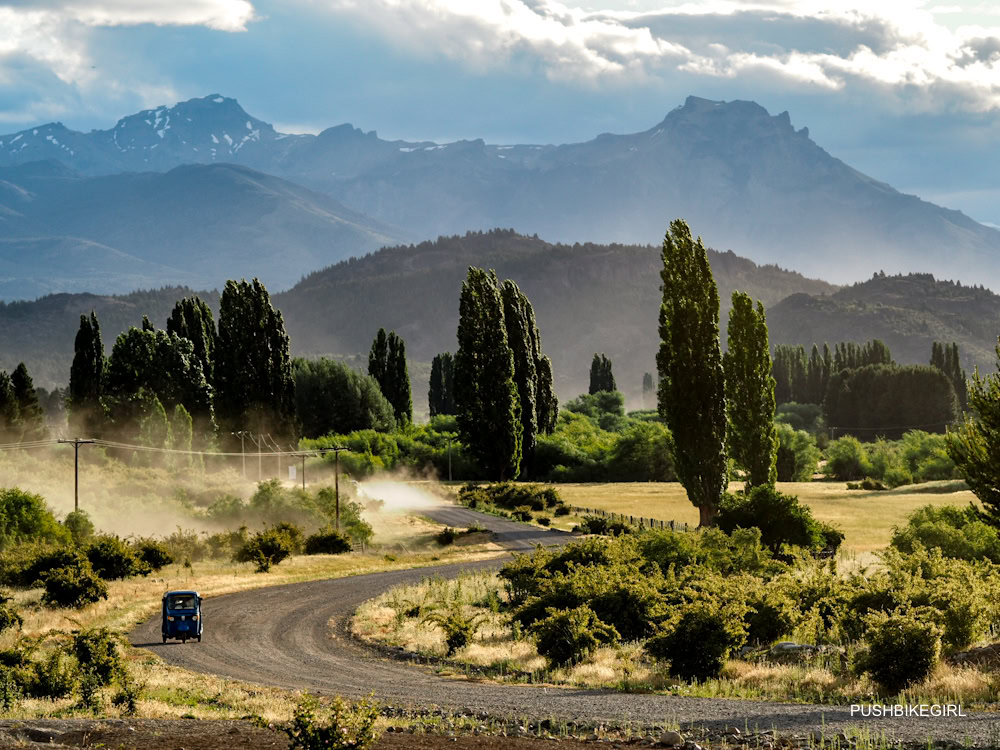
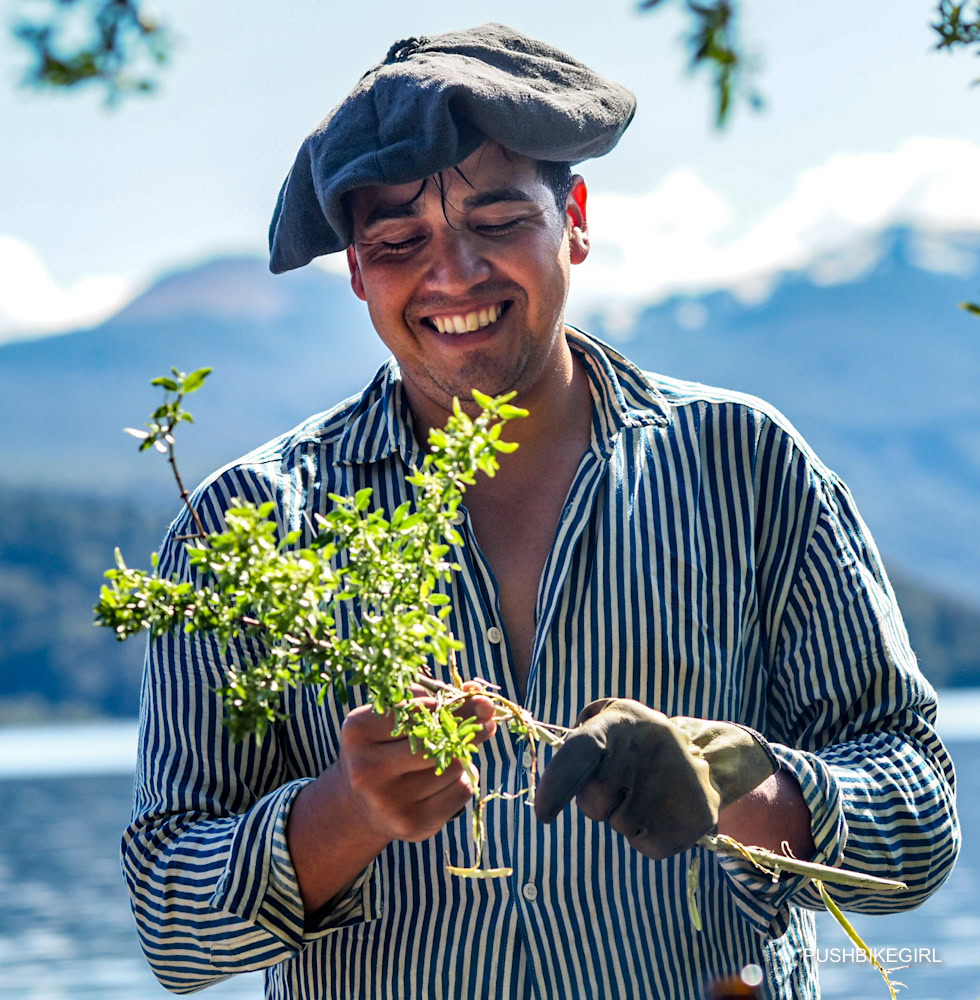
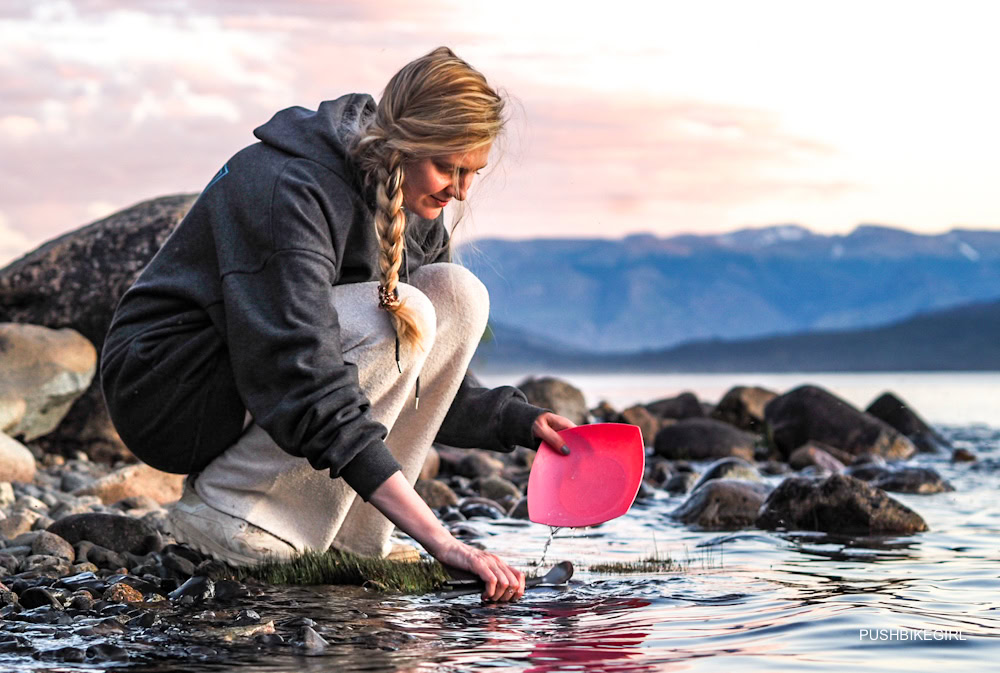
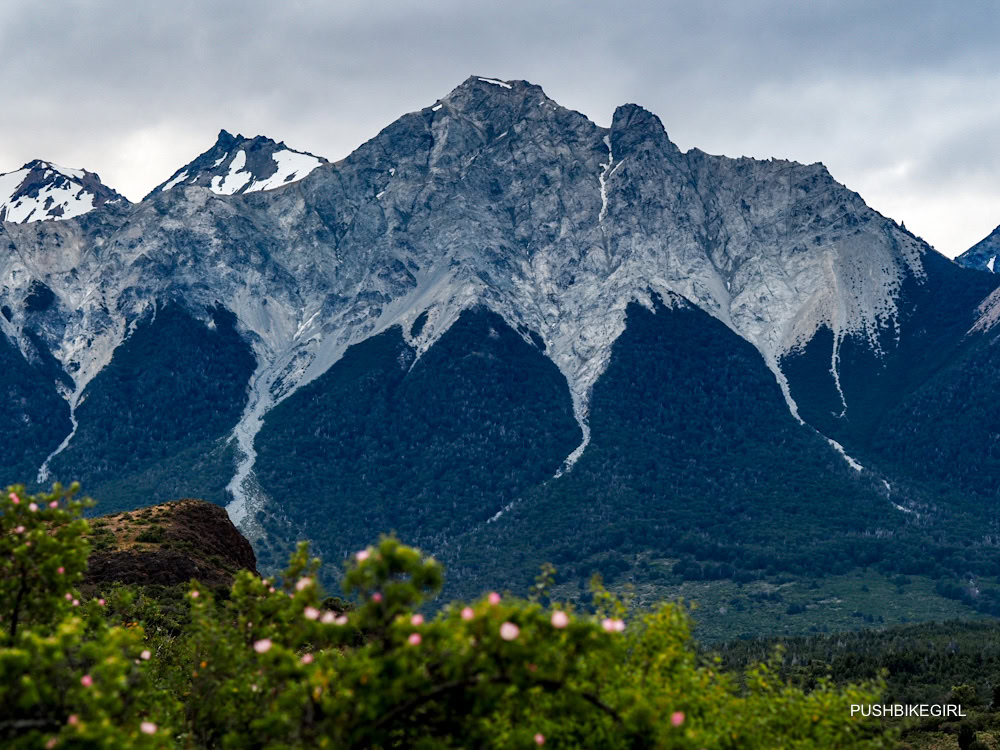

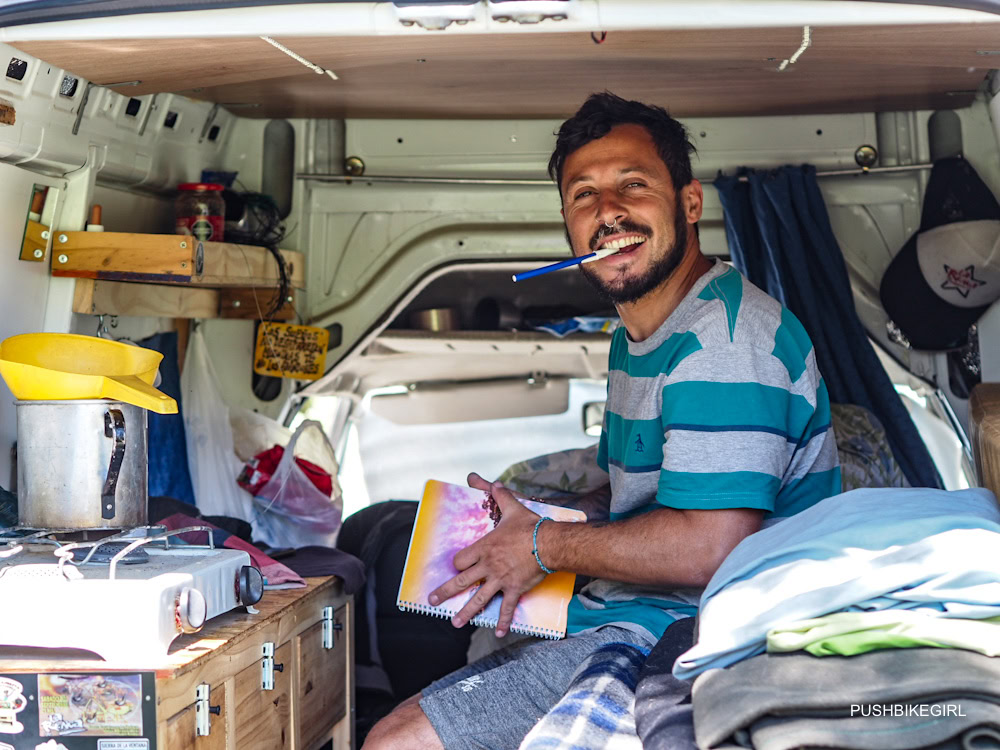
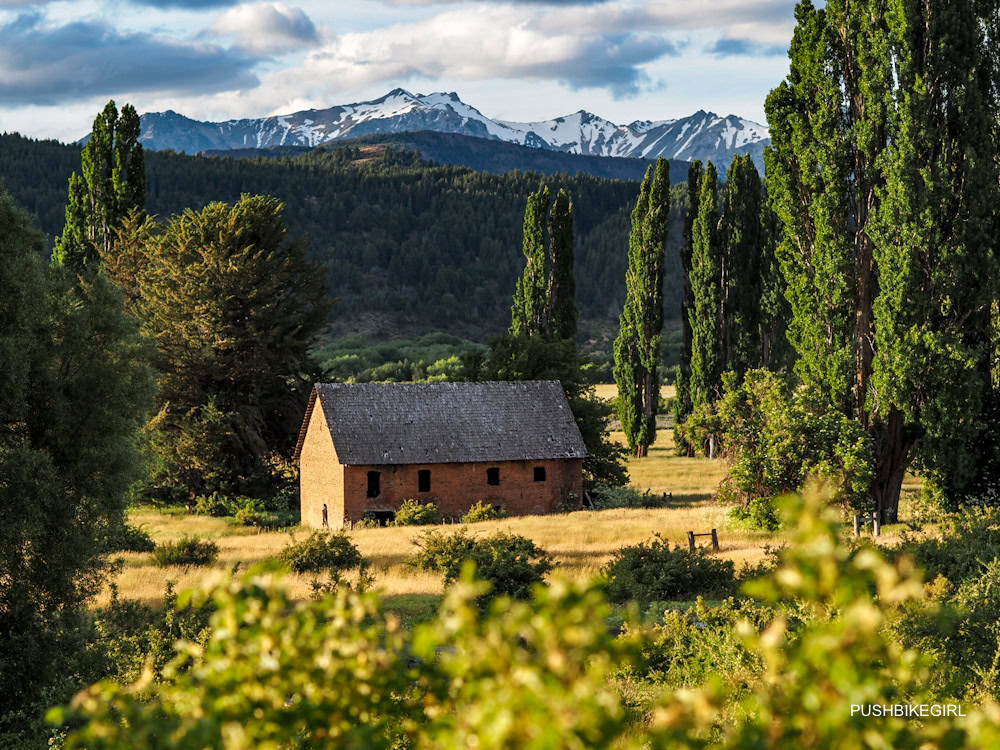

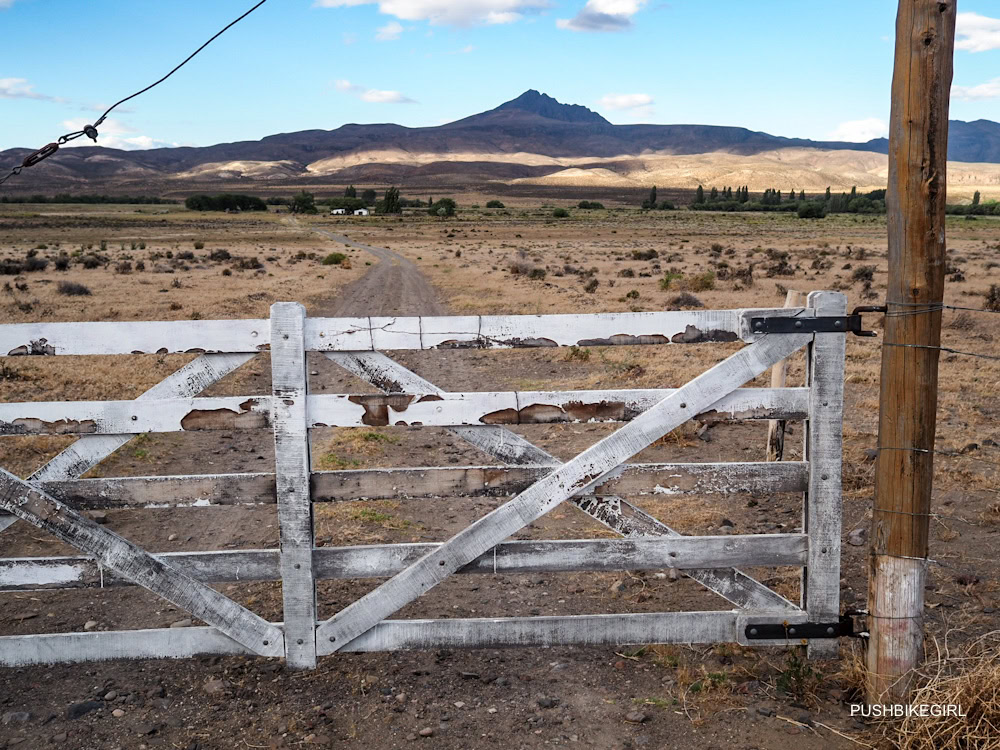
I need contact with people. I’m the type of person who enjoys talking, but also likes to ask questions and listen. Learning, exchanging, understanding remain particularly important to me.
I think it’s only when you’ve been traveling alone for many years, like I have, that you truly learn to appreciate these exchanges with strangers. Being alone can be exhausting and lonely, so it becomes even more important to learn how to connect with others, even when you’re far from home.
I believe I can confidently say that I’ve learned this very well over the last decade and know how to approach people. It’s extremely important to me.


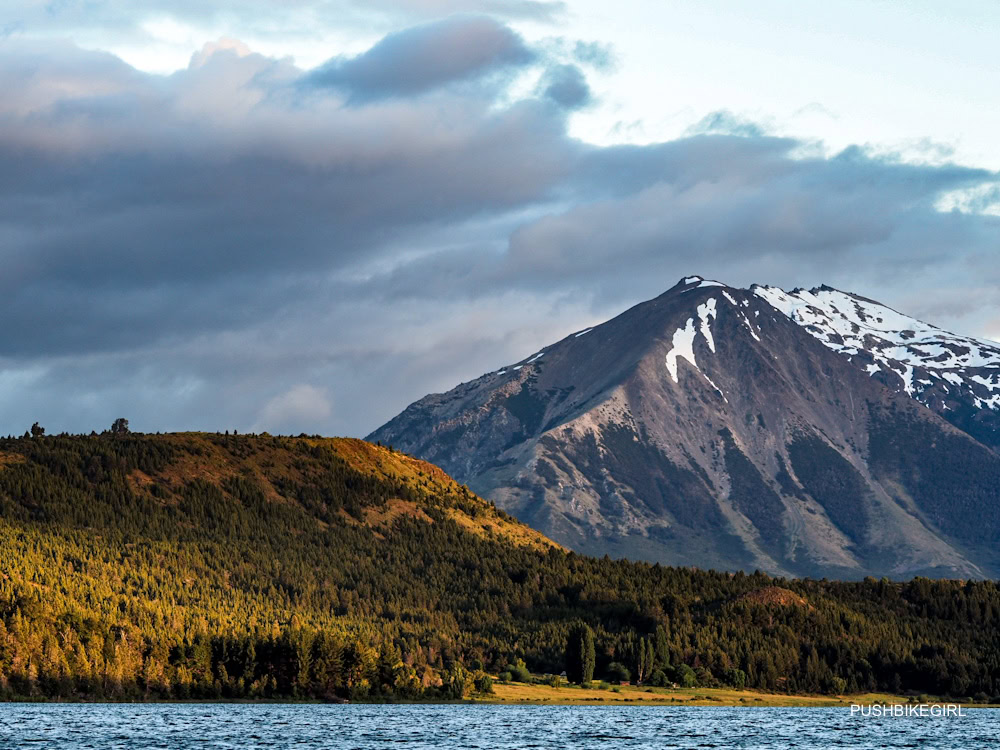

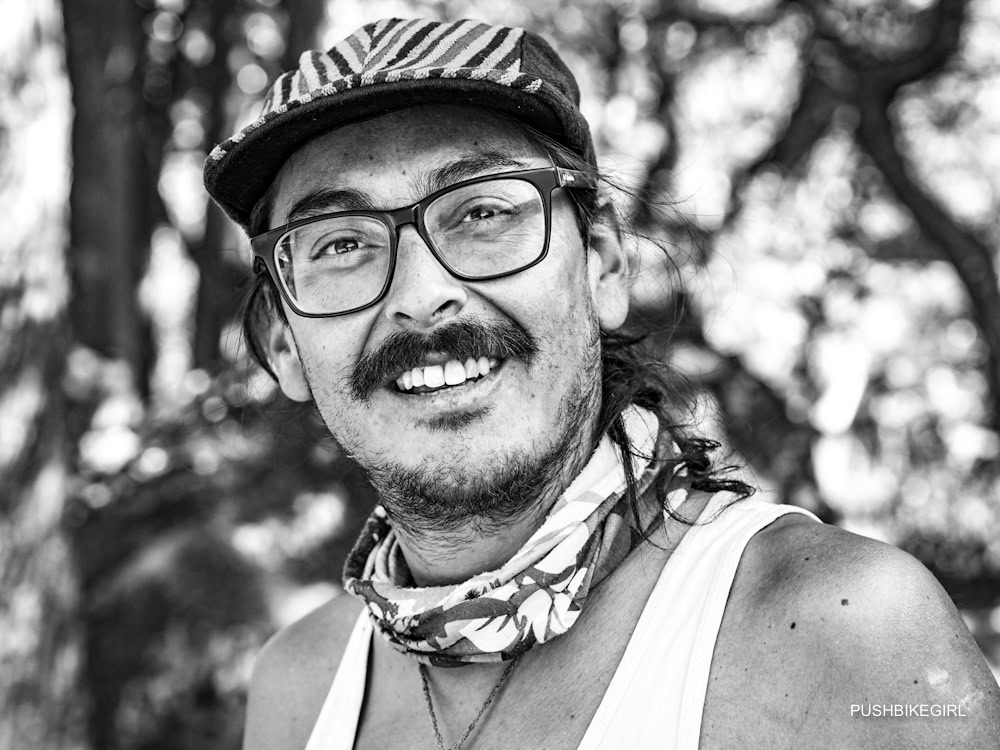
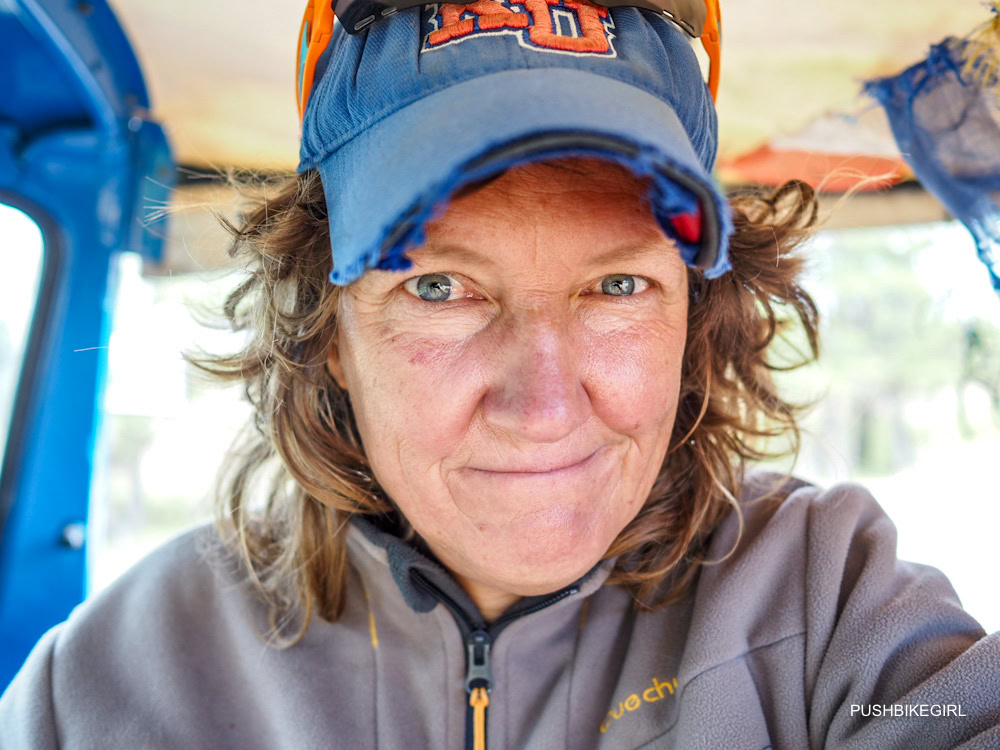
In short: For me, making acquaintances are the icing on the cake on a journey, and they usually stay in my memory much longer than lifeless rock formations or windy vistas.
Although the right balance is what makes it in the end, because being around people all the time can quickly become too much for me. But that’s not what I want to focus on today.
Patagonia gave me many such beautiful encounters, all of which are meaningful to me, and I’d like to share some of them with you today.
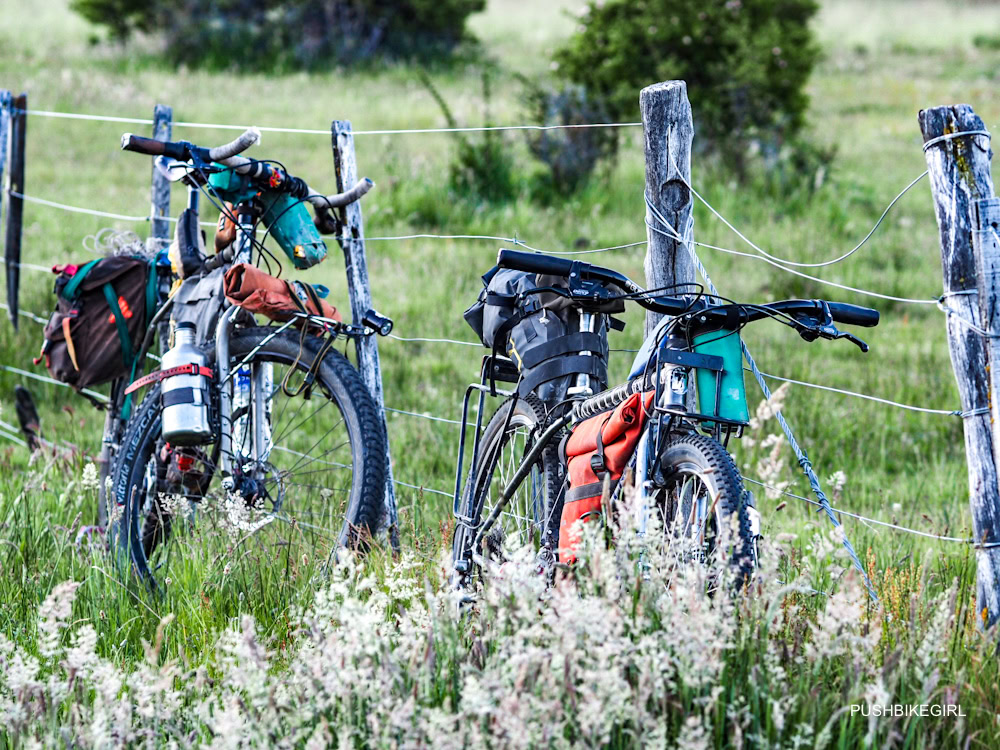
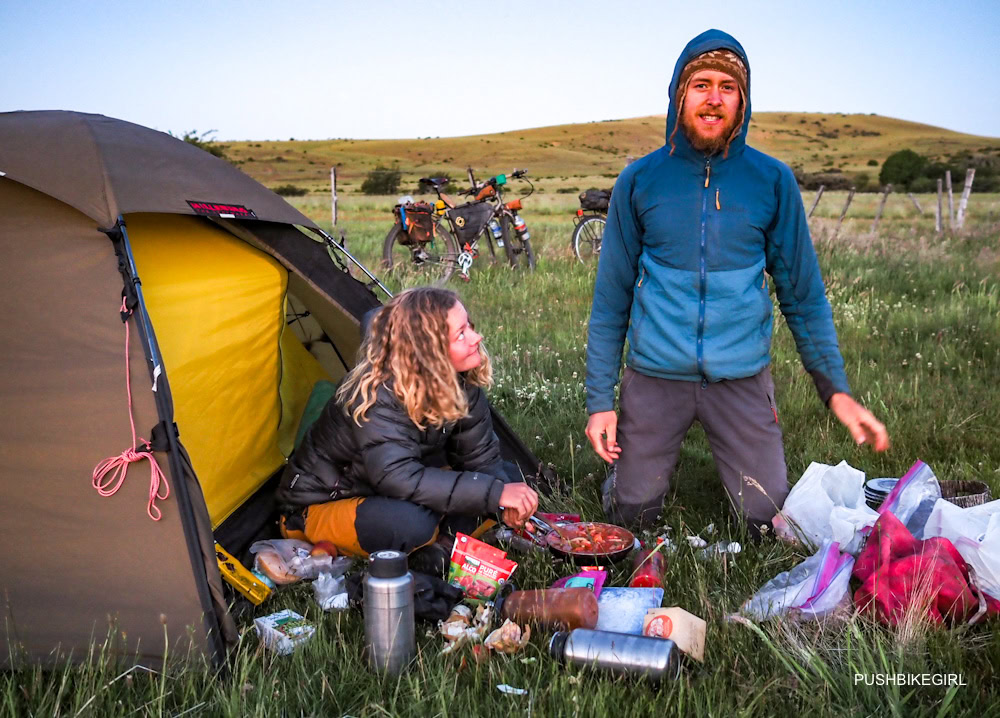

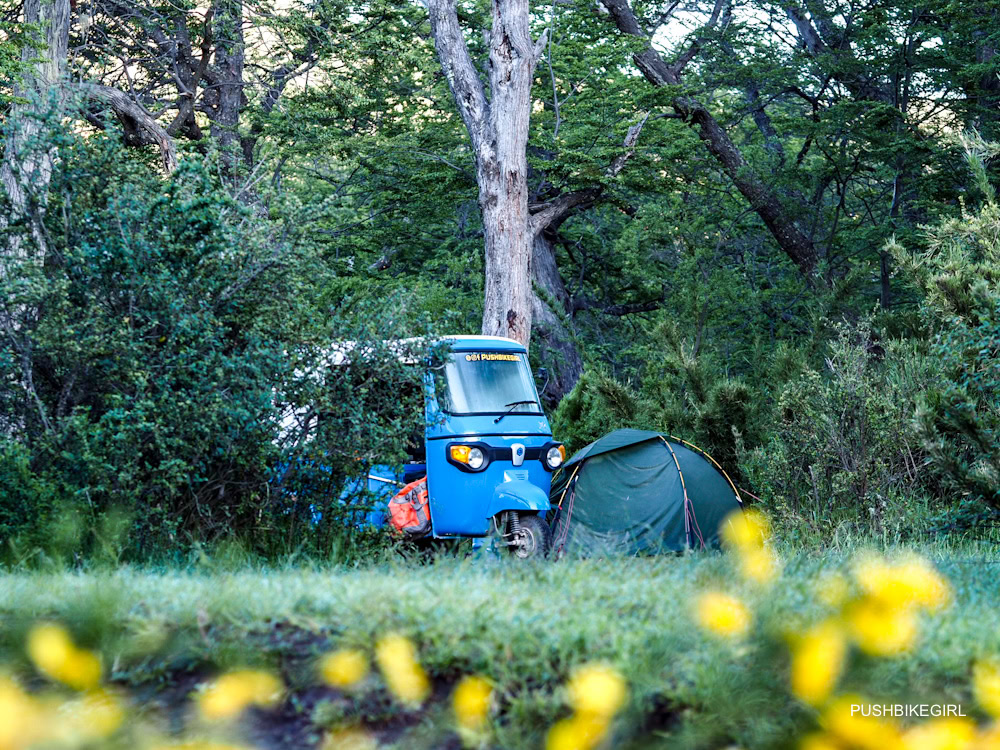
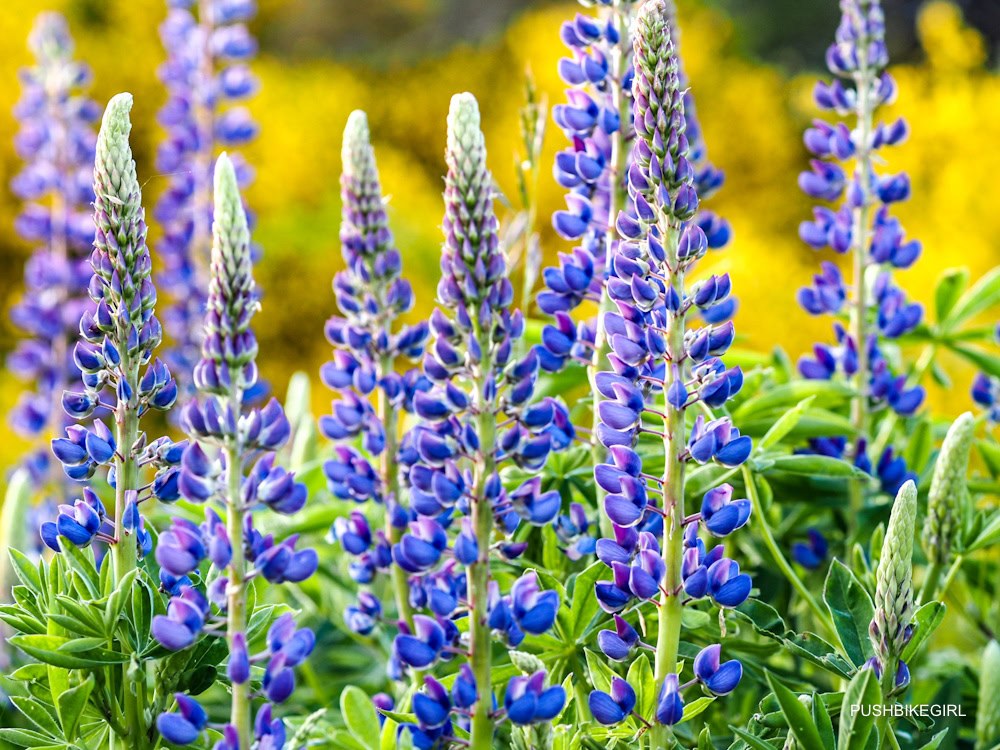

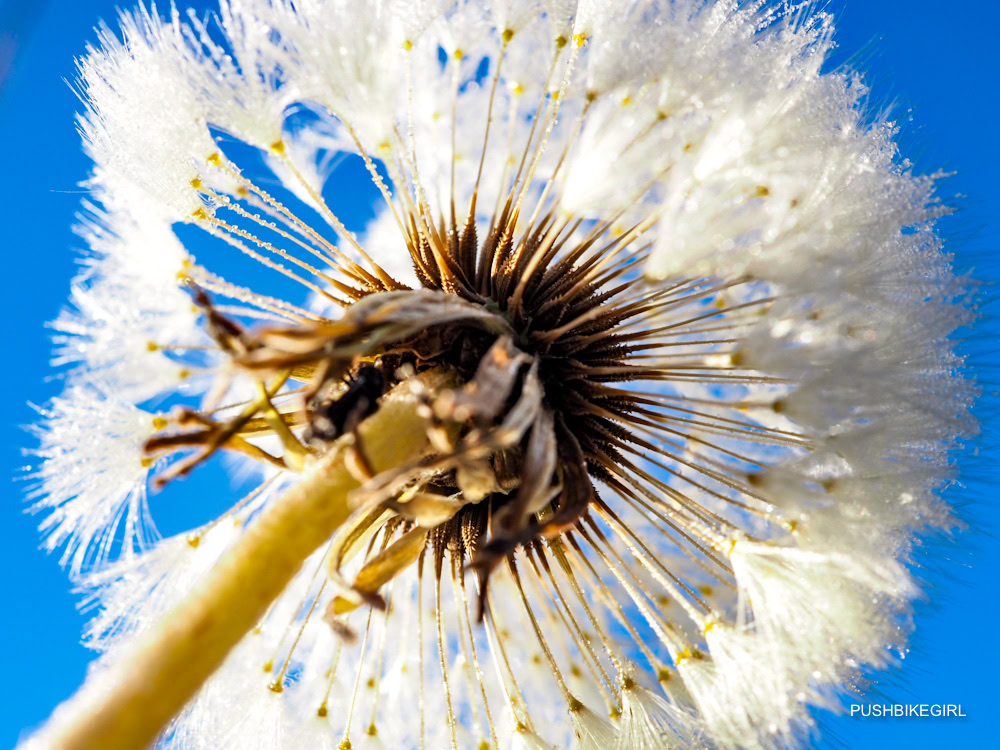
Now, just a brief look back to the past:
Varanasi, India, 1996.
I still remember very clearly when I was standing at the train station in one of the most fascinating places in the world, waiting for my train.
Chaos surrounded me when a young Argentine man introduced himself as Alex and showed me the same train ticket for the sleeper car as I had. We hit it off immediately and continued our journey together from then on.
India challenged both of us tremendously, and the many highs and lows we experienced together brought us closer.

Alex and I became the best of friends and had three incredible months together. When our paths eventually parted, we said goodbye with heavy hearts, saying, “We’ll see each other again someday.”
Since I entered Argentina, my greatest wish has been to find Alex. We haven’t seen each other in almost 30 years, and so I hope to find him alive.
We lost all contact. He’s nowhere to be found online. The only thing I know about him is the address of his parents’ house, because he had told it to me so often, that I still remember it by heart after almost 30 years.

Junín de los Andes, Argentina, December 2023
I see an older man working in the garden. The address of the house is the one Alex told me about back then.
I introduce myself with Heike, and I immediately see a smile in the man’s eyes. When I mention that I traveled with Alex in India, the man nearly throws himself around my neck and calls to his wife:
“Heike is here!” and Alex’s mother is beside herself, calling me into the house.
“Alex lives 500 kilometers north, you’re lucky, he’s coming to visit in two days. Just come back on Friday, or are you hungry? I’m cooking, you’re welcome to join us for dinner.”
“Please don’t tell him I’m here, I want to surprise him.”
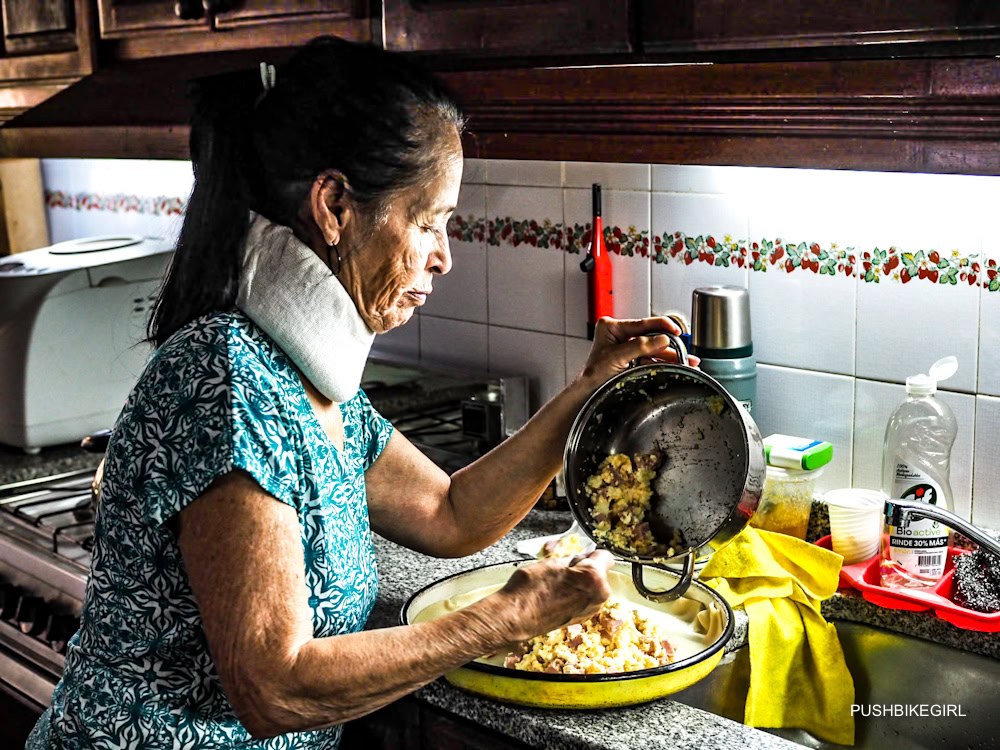
On Friday, we sit together in the kitchen, when Alex and his wife Claudia come into the house.
Alex sees me and screams, “Heike! I can’t believe it!” And we hug each other!
“Your parents knew right away who I am,” I tell him, and he says, “Of course, do you know how much I’ve talked about you? Everyone knows your name and our shared experiences. You’re the best travel companion I ever had. It’s so great that you’re here visiting us.”
“And the same goes for you,” I reply.
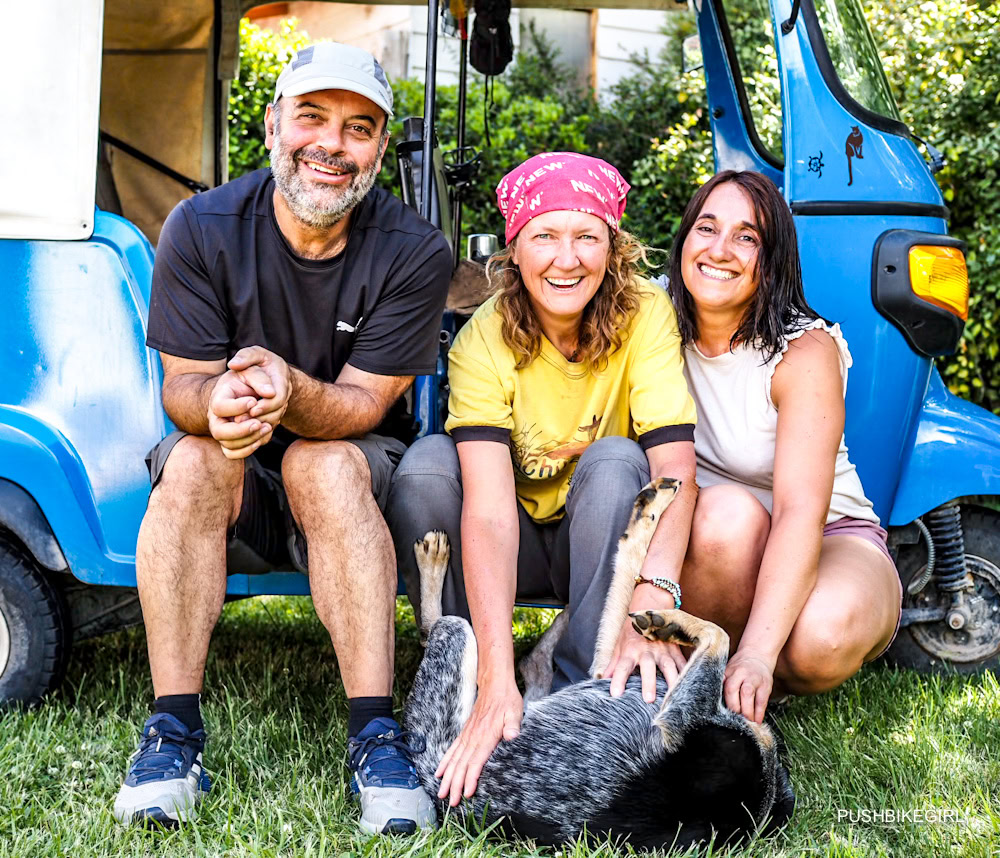
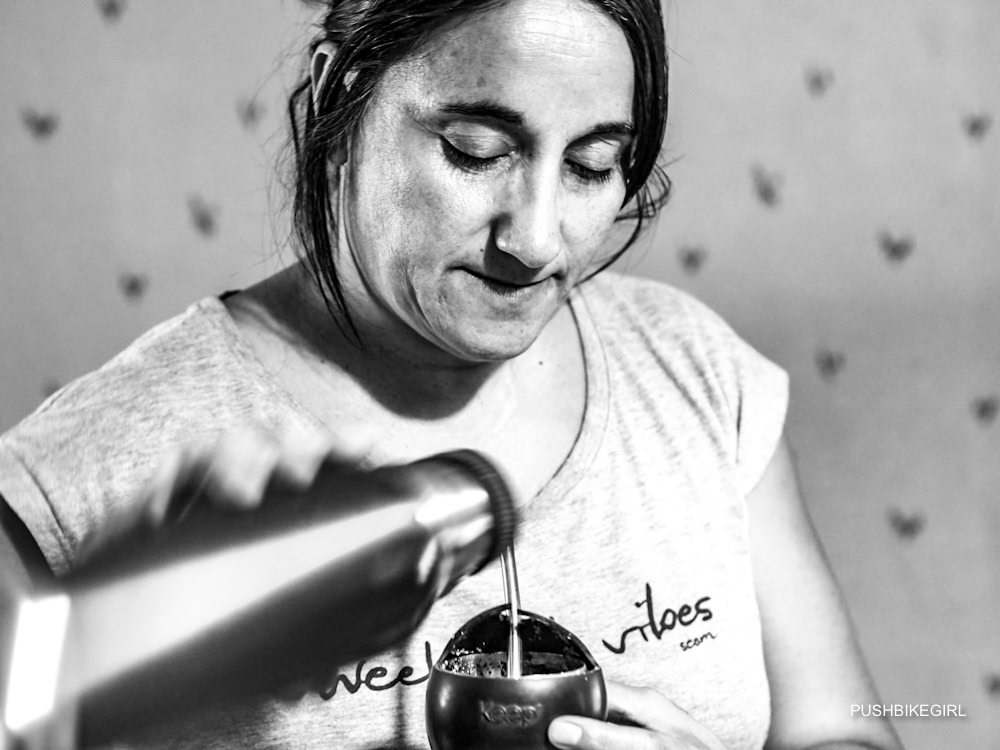
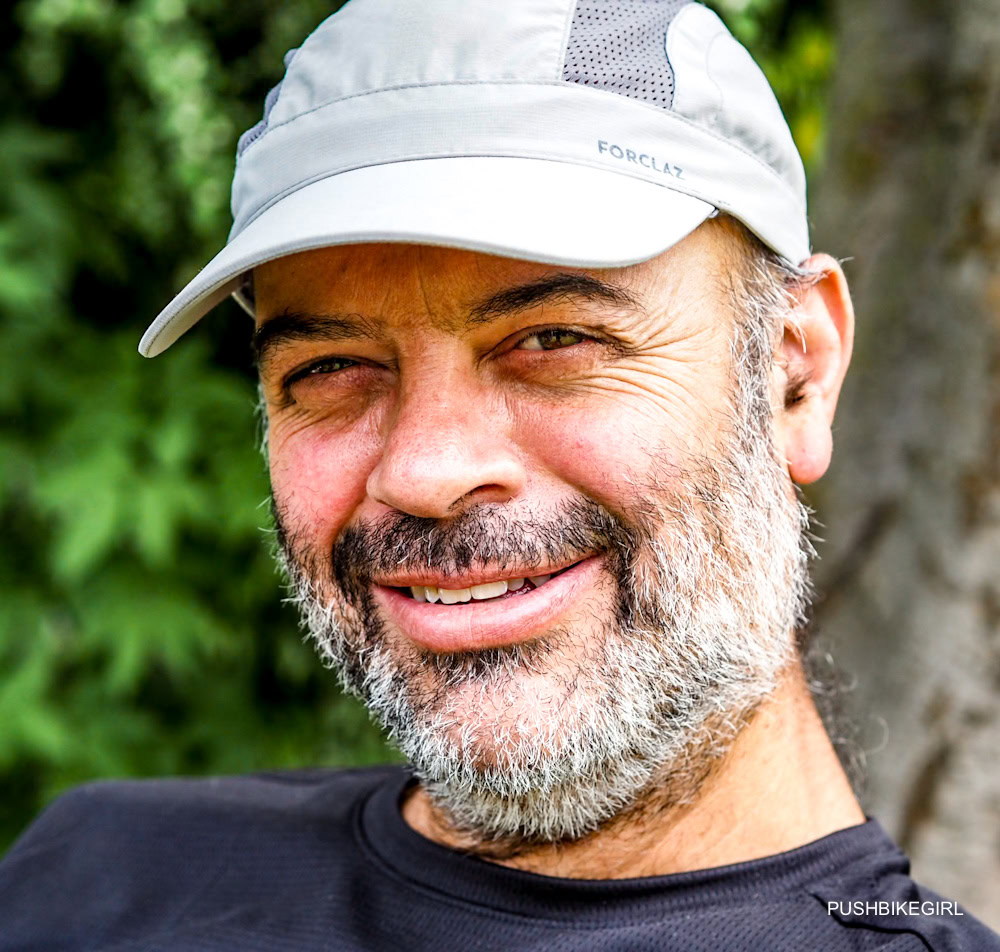
We have a wonderful weekend together. His father grills Asado for us, and his mother bakes delicious pizza.
For both of us, it’s an important reunion.
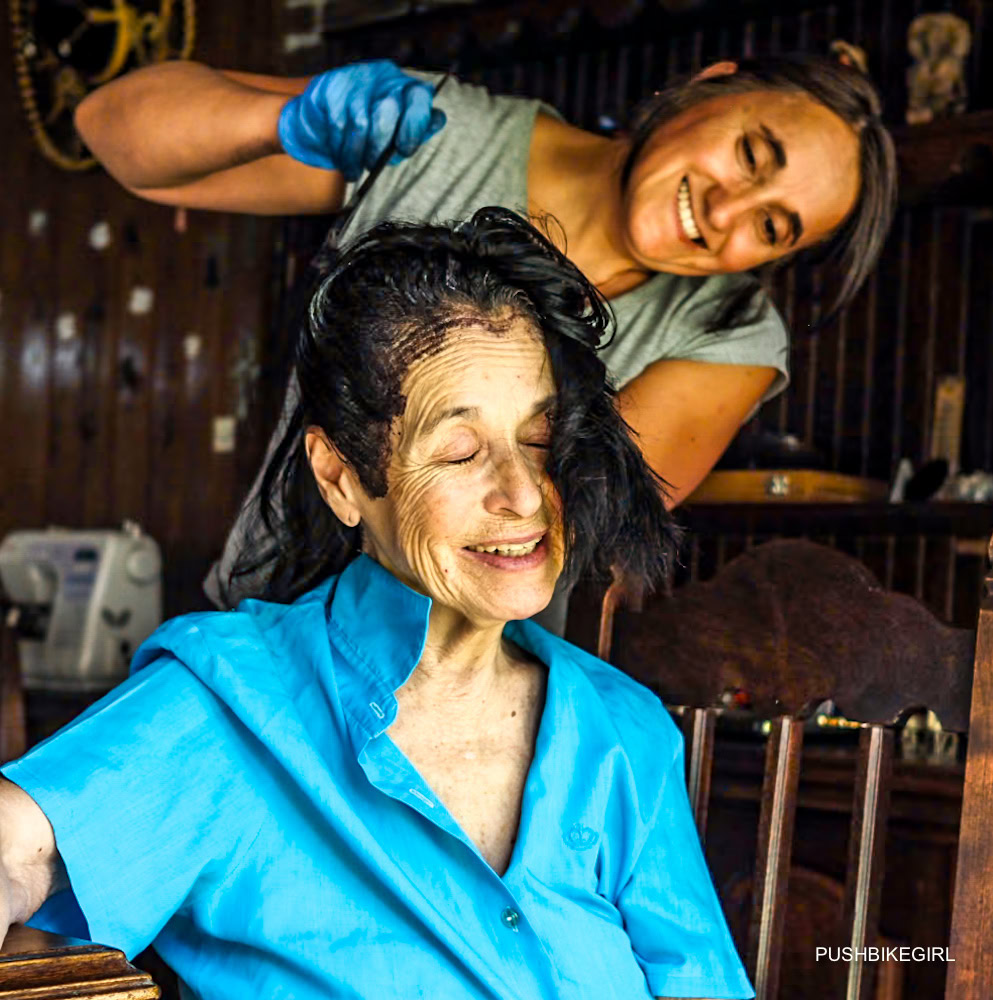
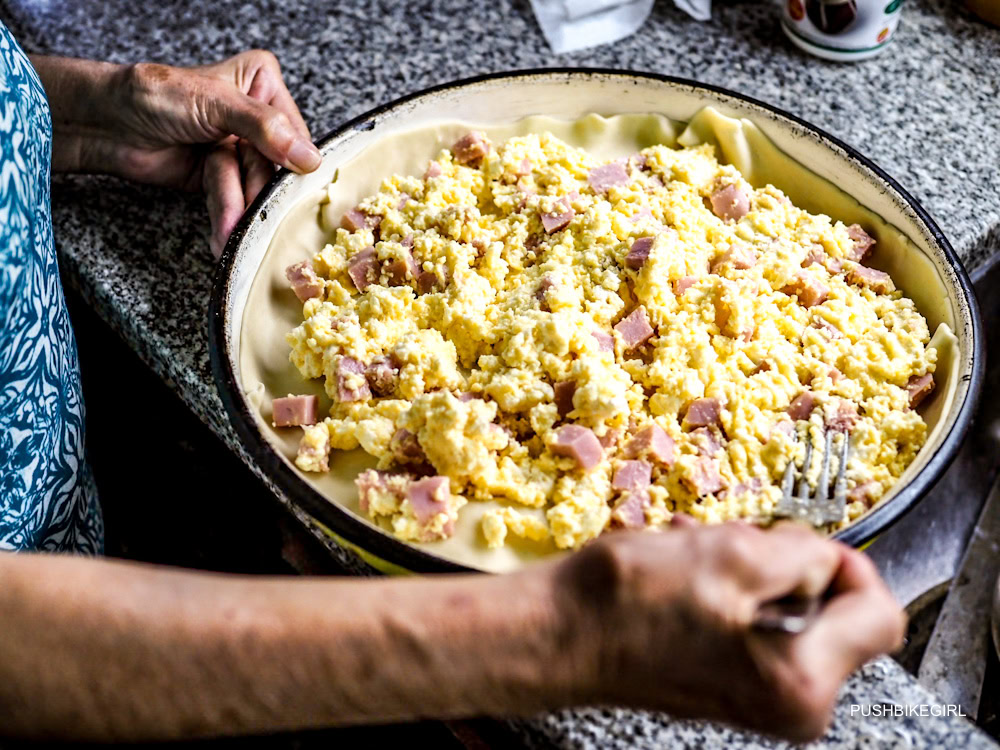
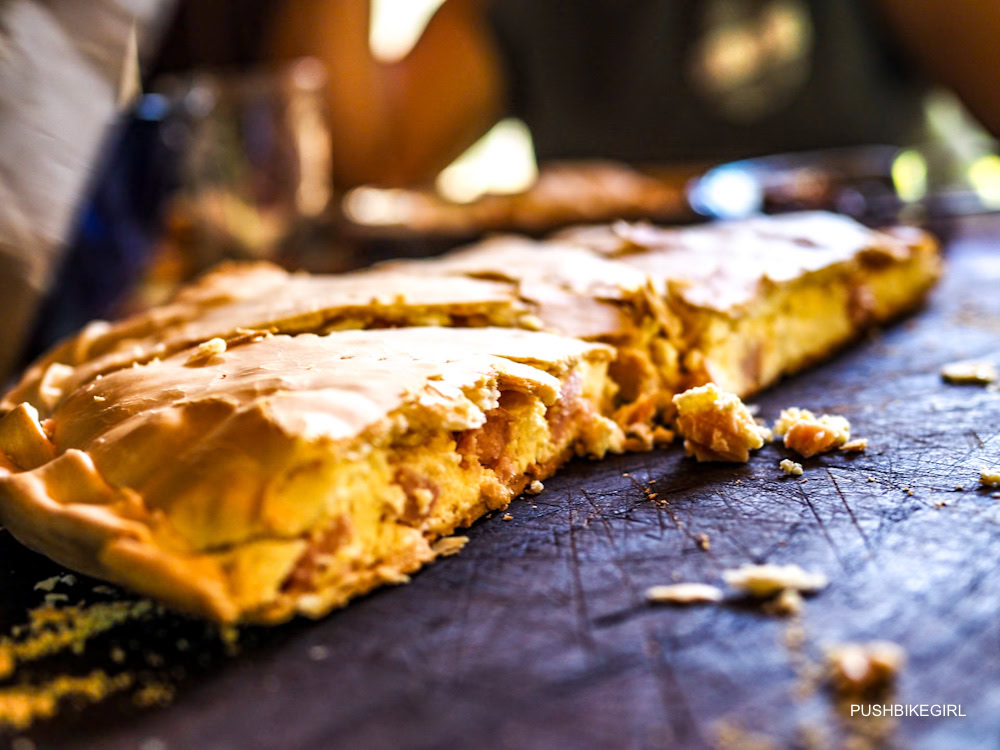

It’s just before Christmas, and I decide to spend the holiday season in a remote location.
Away from social media and obligations. With no mobile network, I pitch my tent directly at Lake Lolog.
Alex had given me the tip, and the location could not be more perfect. The ideal spot to celebrate Christmas.


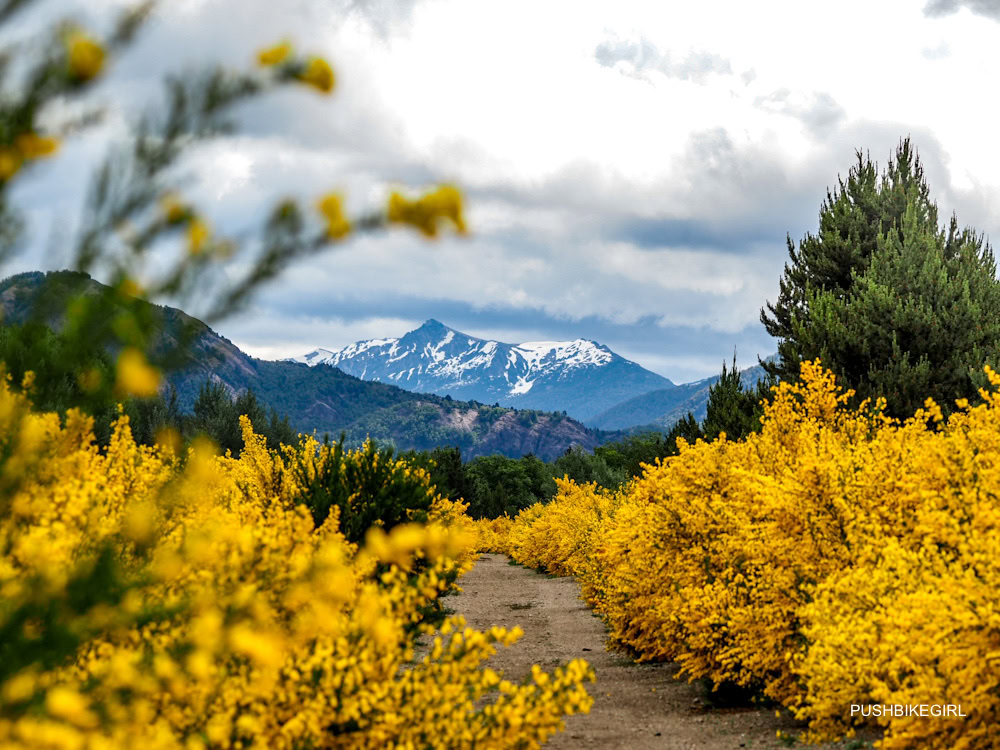

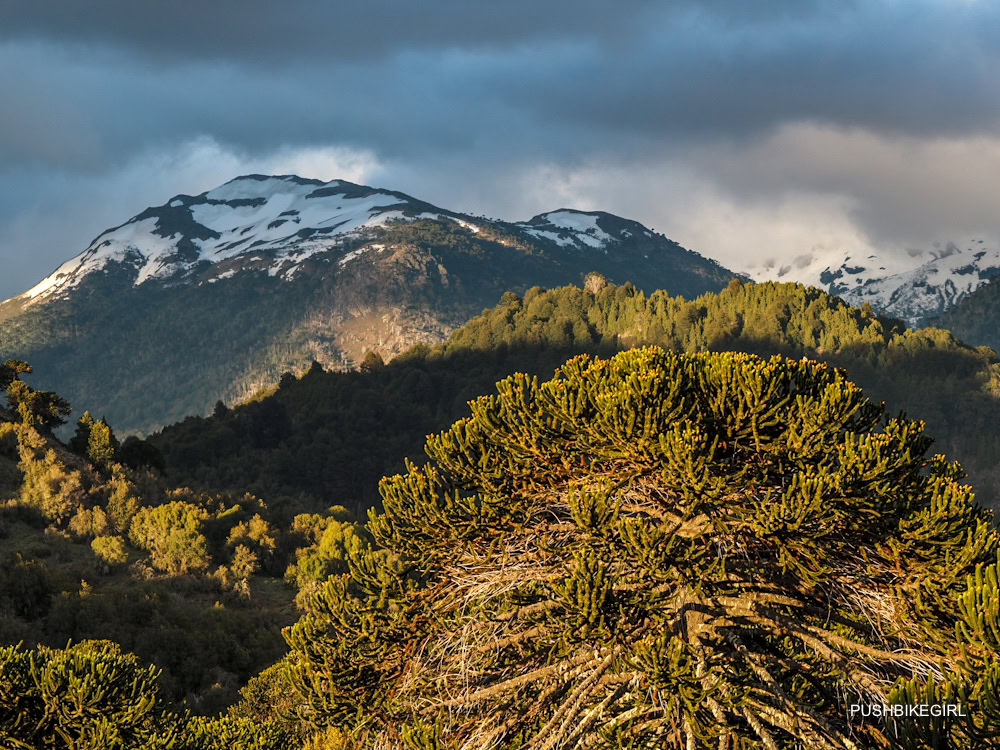
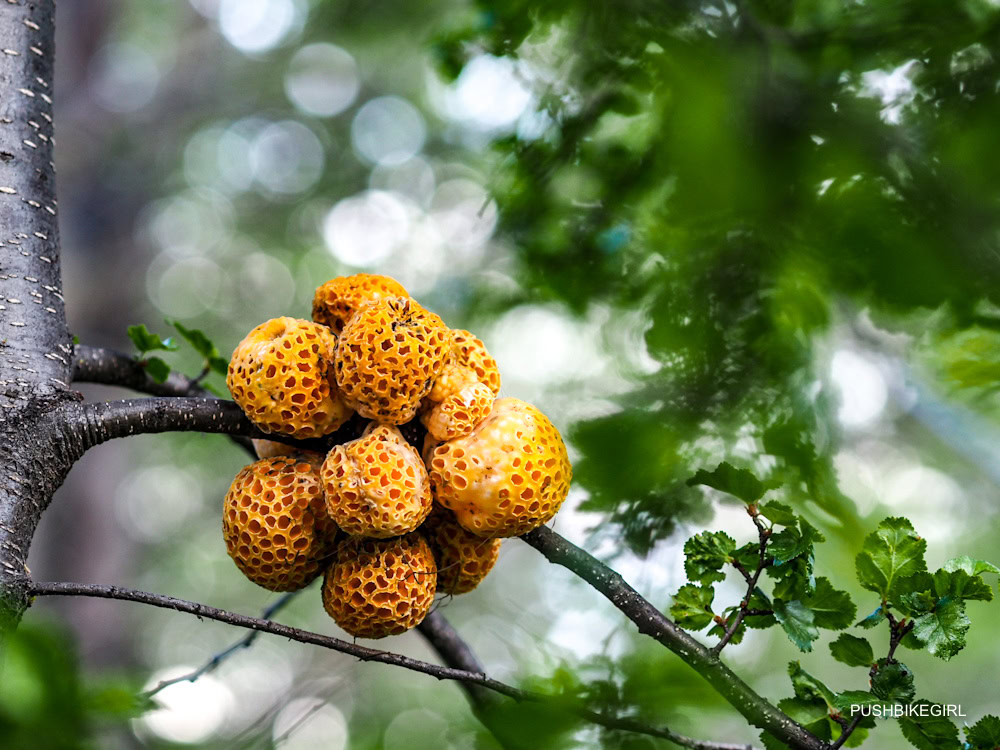
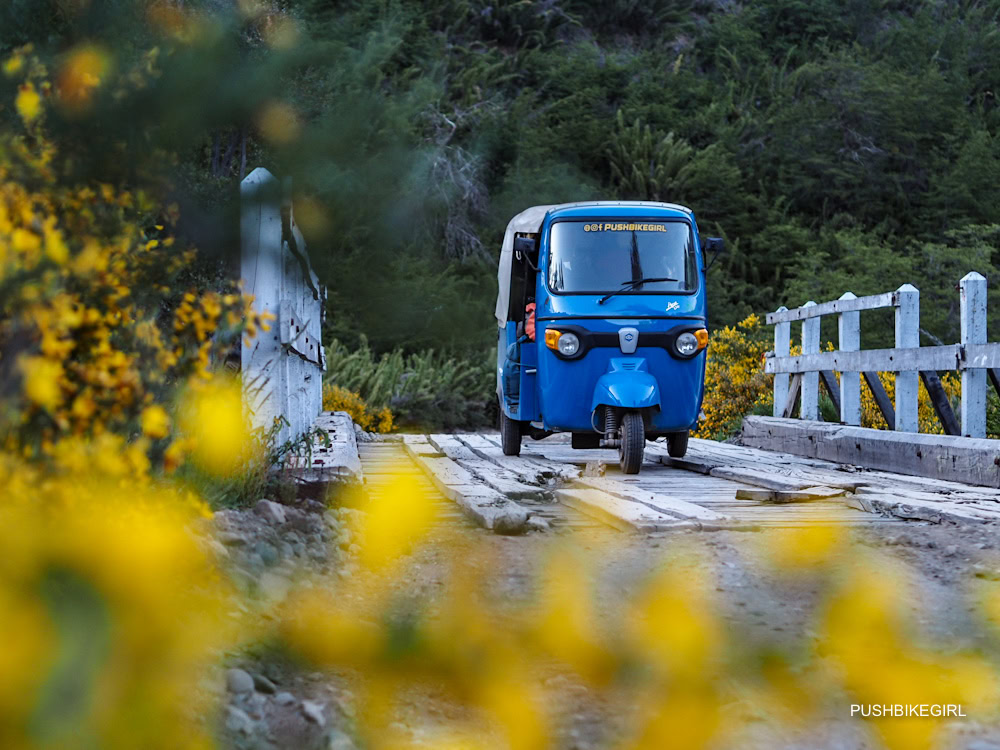
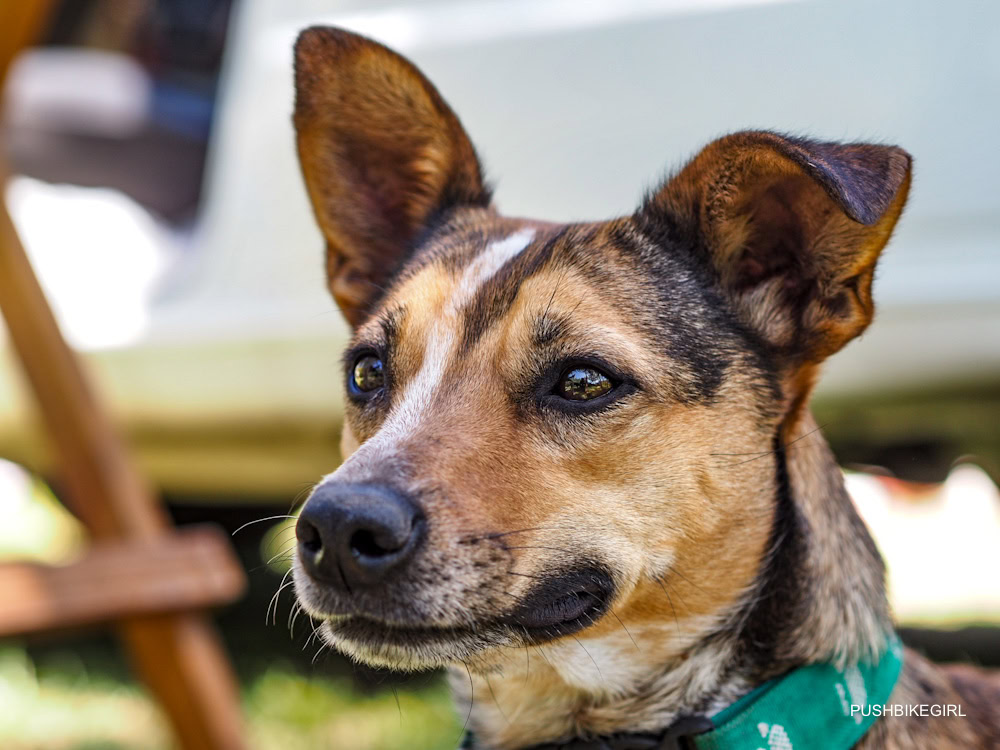
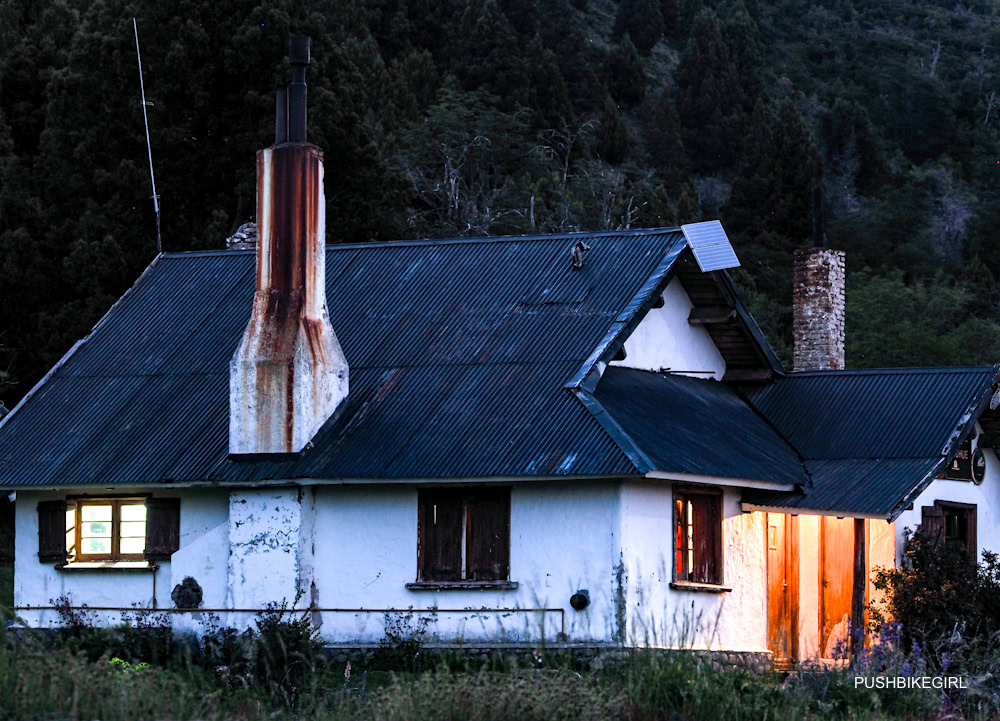
It’s windy and cold. Butch and I collect firewood for our Christmas Eve campfire.
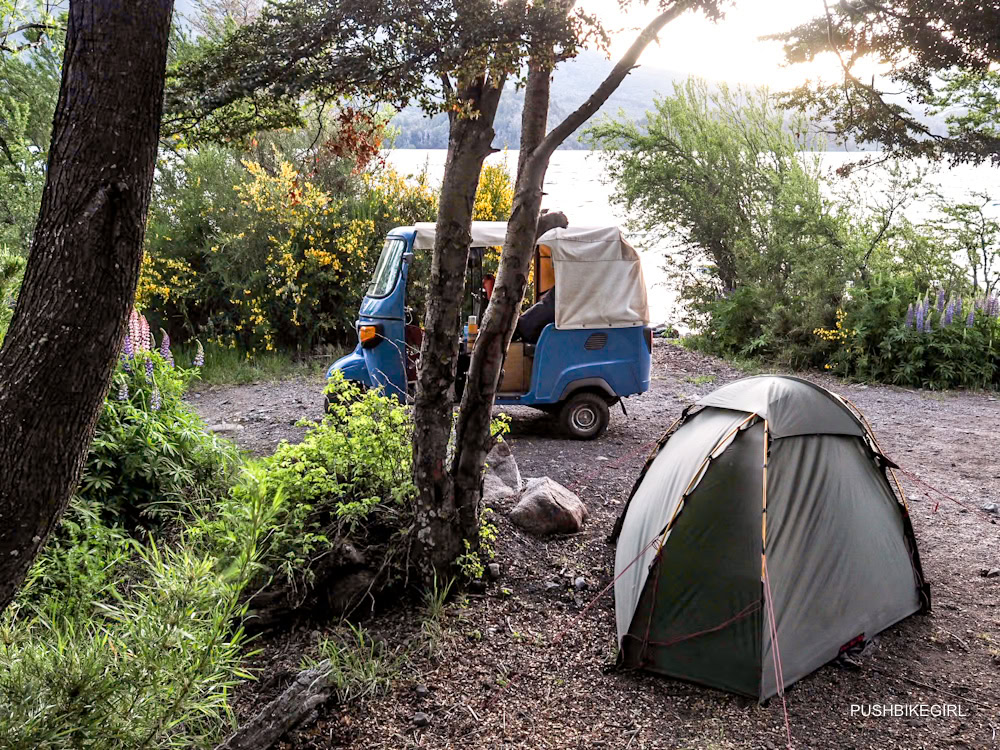
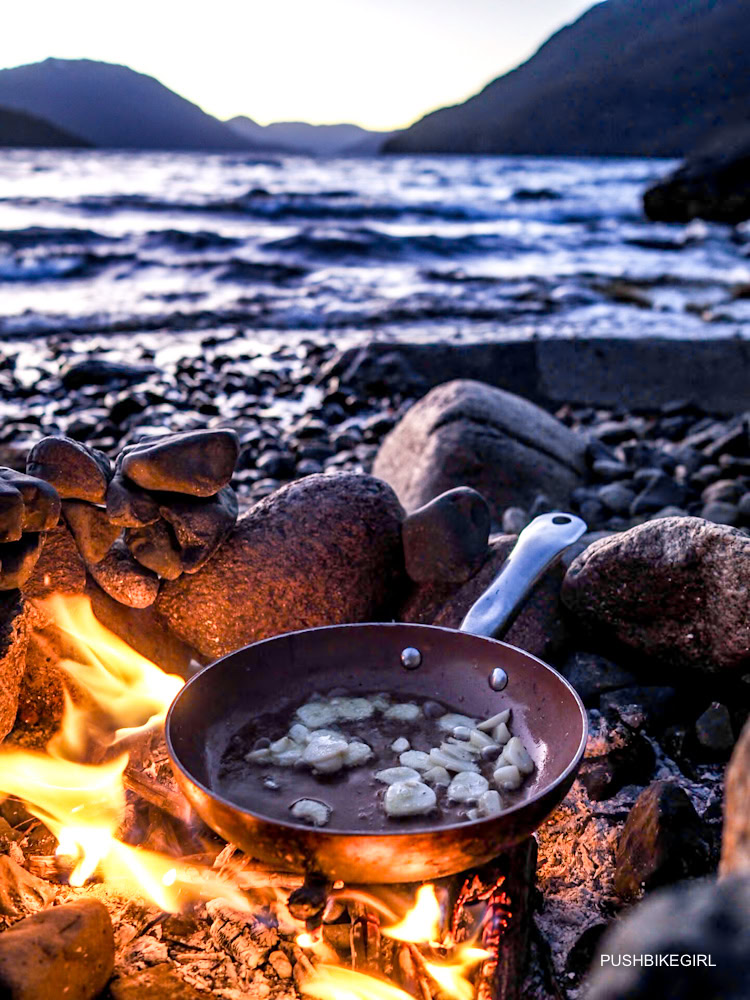

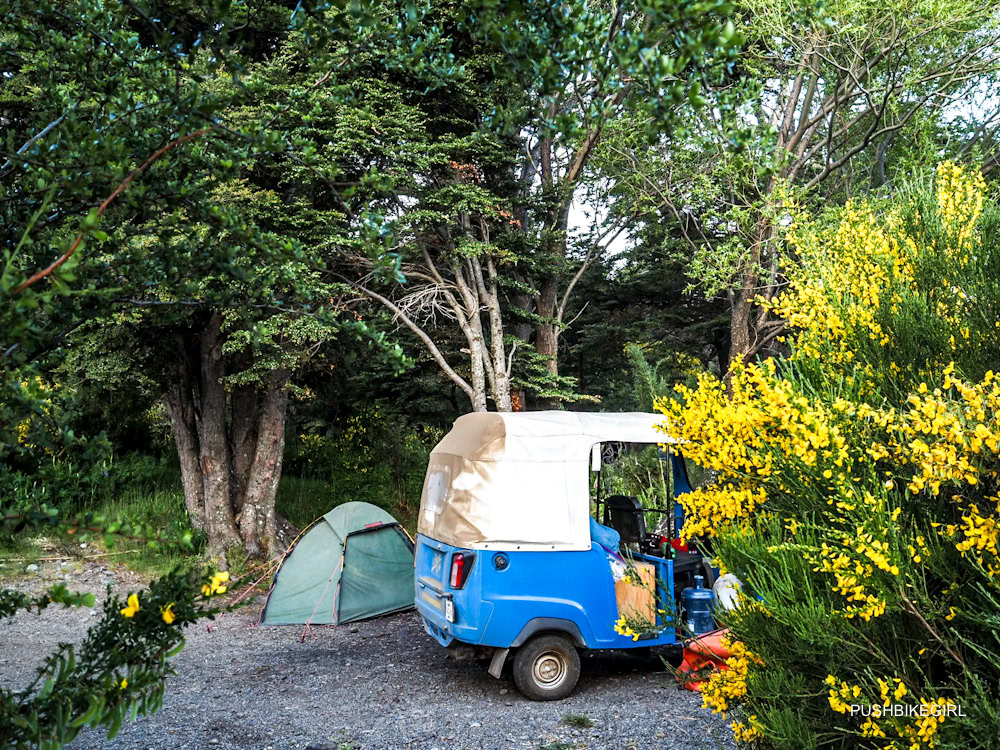


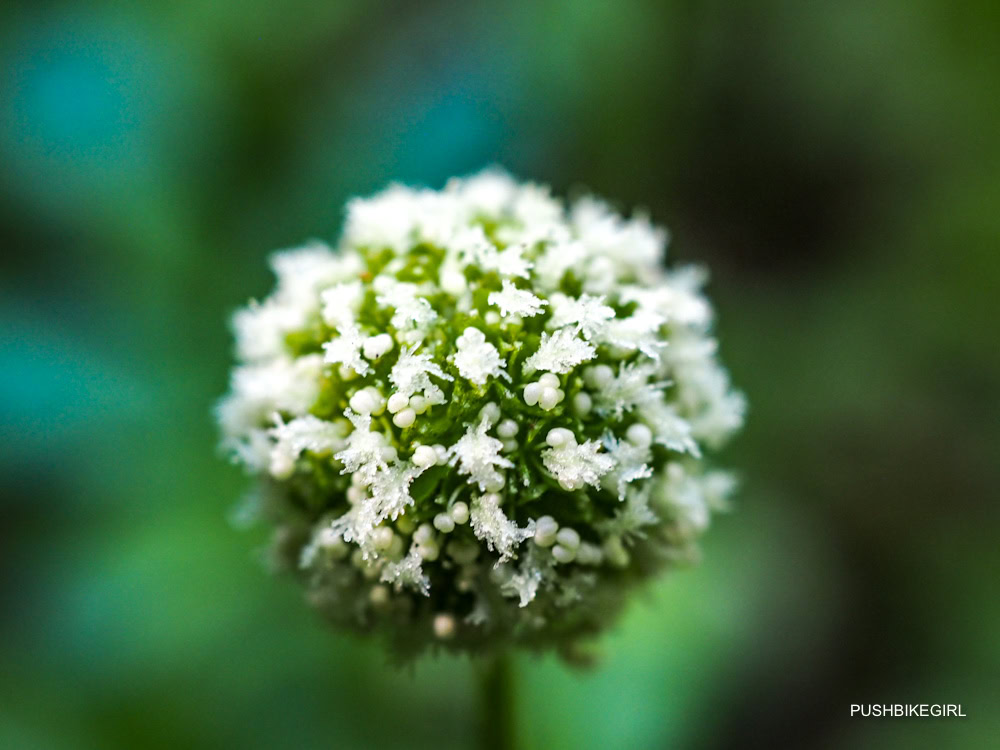
I’ve been used to spending Christmas alone for many years, but it still isn’t easy for me. So, I’m glad when Christmas Eve is soon over, and I’m excited when I meet a couple the next day, who sit down with us at the lakeside.

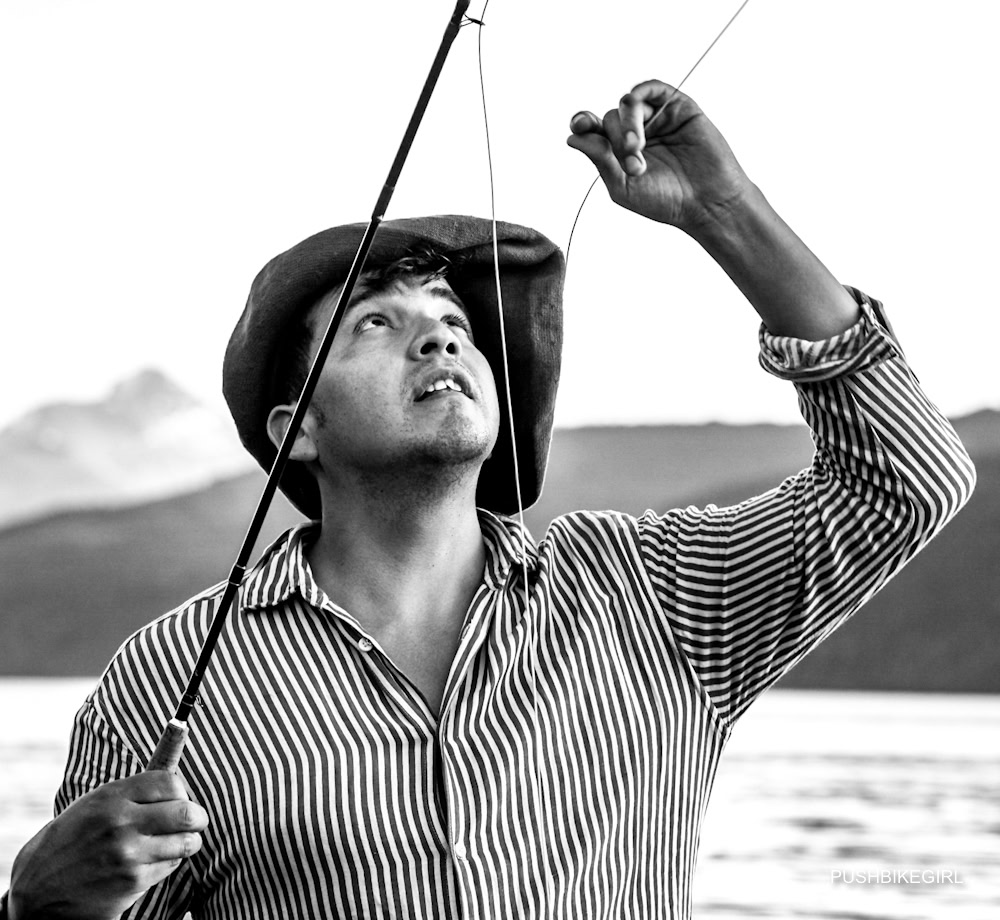

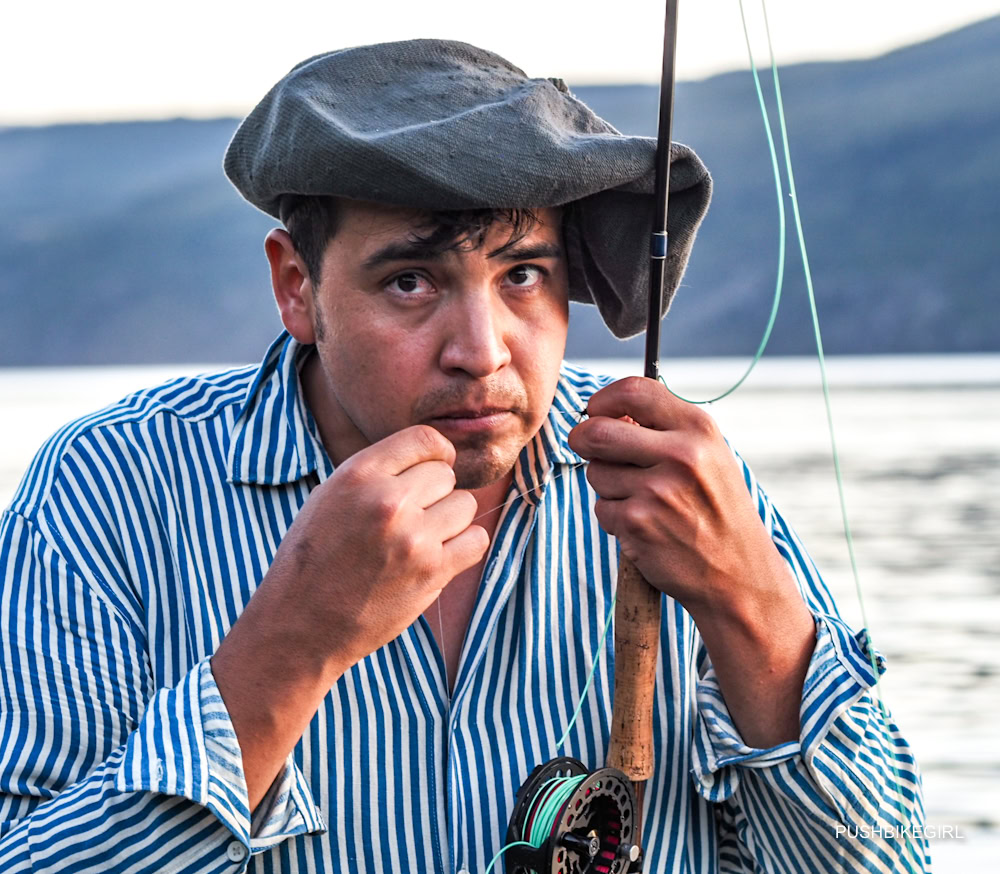


Jasmin is German and is married to Coco, an Argentine. I couldn’t have found a better match. They’re both great, and we talk, philosophize, and fish.
I’ve been dreaming of fly fishing for a long time, and I’m more than happy that Coco explains to me how it works—or let’s say, how it should work theoretically.
Fly fishing, as one might expect, came from the USA to Patagonia because the conditions here are the same as in North America.
Jasmin has a particularly warm personality, and Coco adores her. They make a great couple, and we have a fantastic evening. Since it was so nice, we agree to meet again the next evening for an Asado.
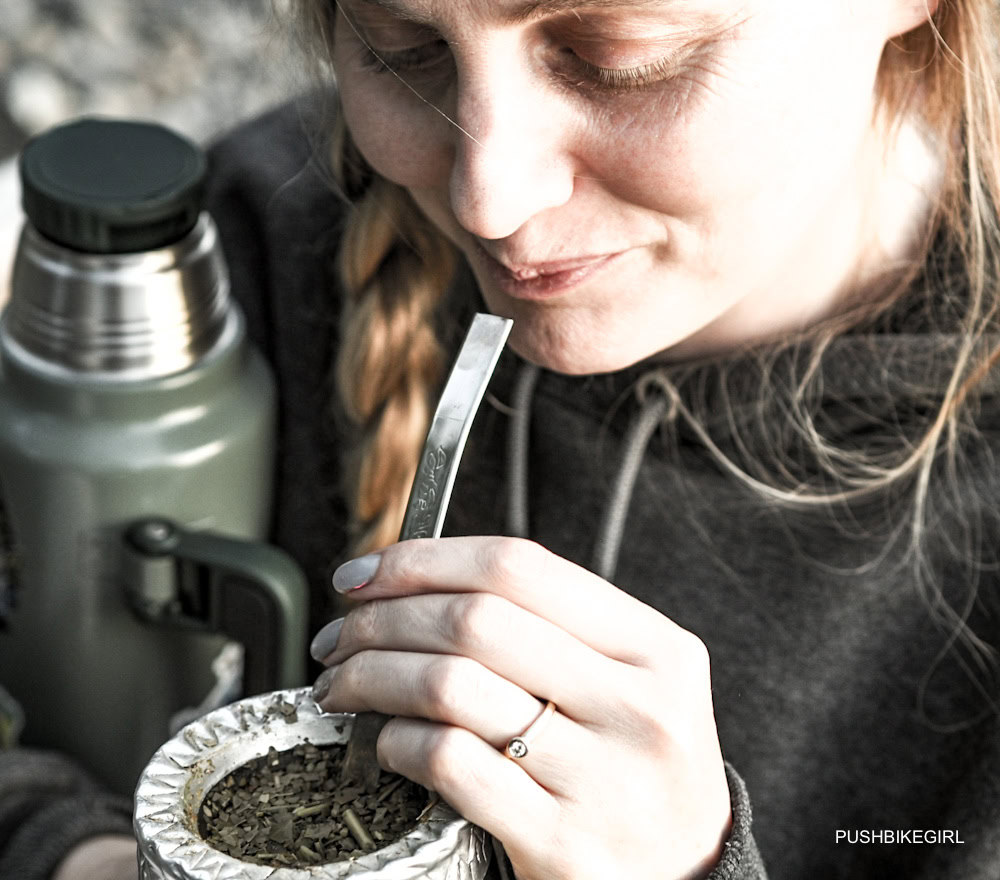
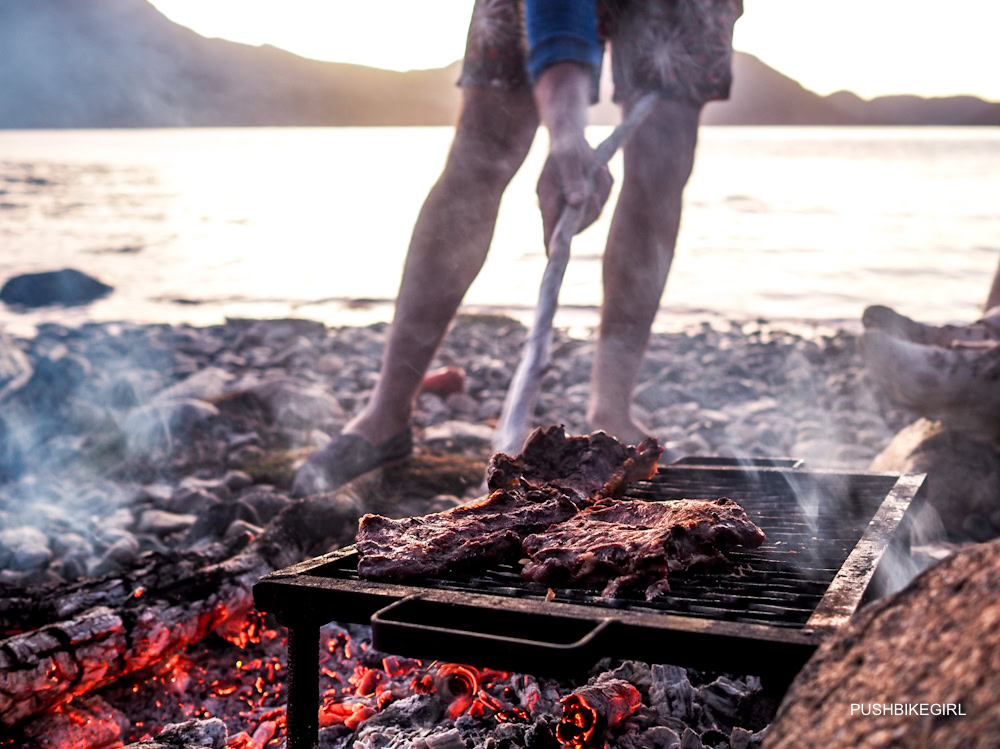


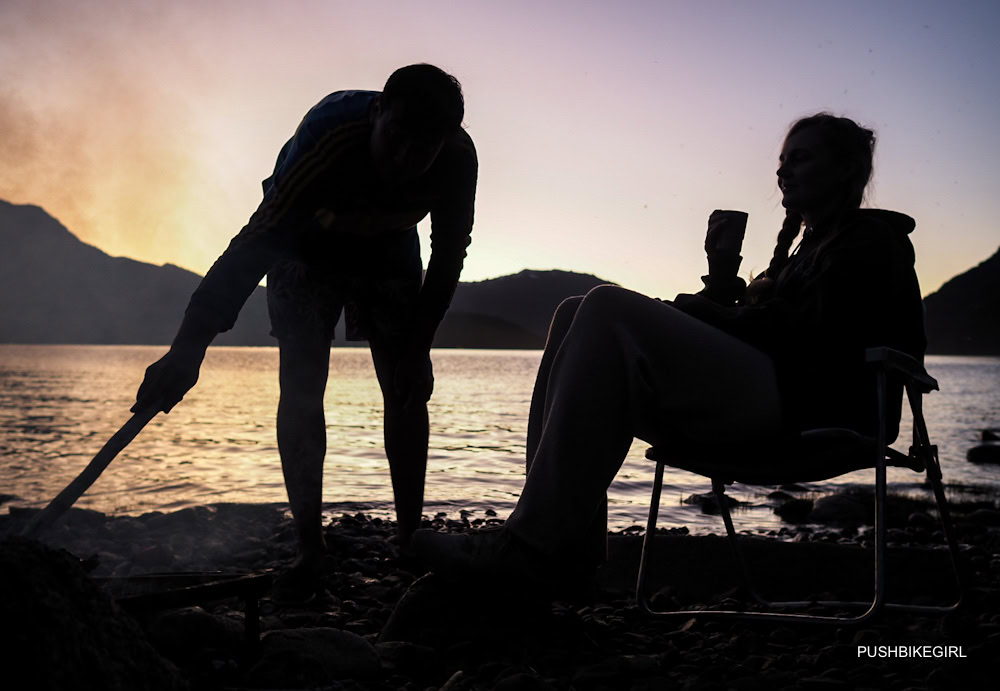
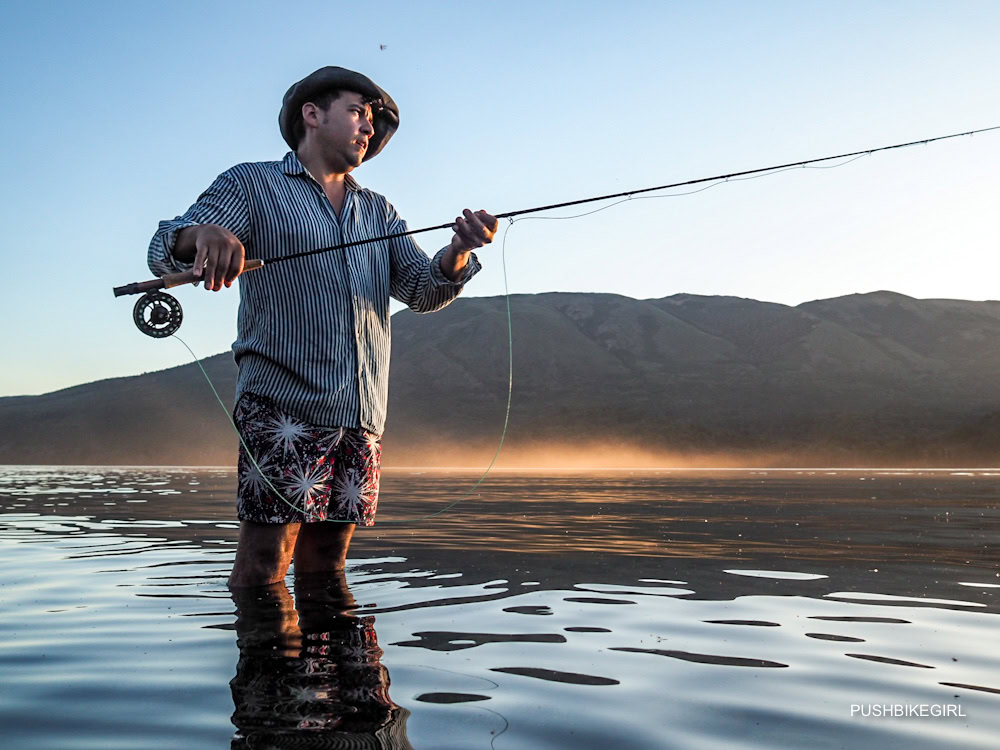
They show up as promised around noon and bring everything imaginable for the barbecue. It’s probably one of the best Christmas celebrations I’ve ever had.
The location and the conversations are simply top-notch. I’m so grateful to them for such a beautiful time.
Nearby, an Argentine is fishing with a can. Can fishing is illegal because the hooks used injure the fish too much, and you can’t release them back into the lake if you catch the wrong one—it won’t survive.
Still, the guy looks super cool, and I can’t resist photographing him. Just like Coco, with his beret.
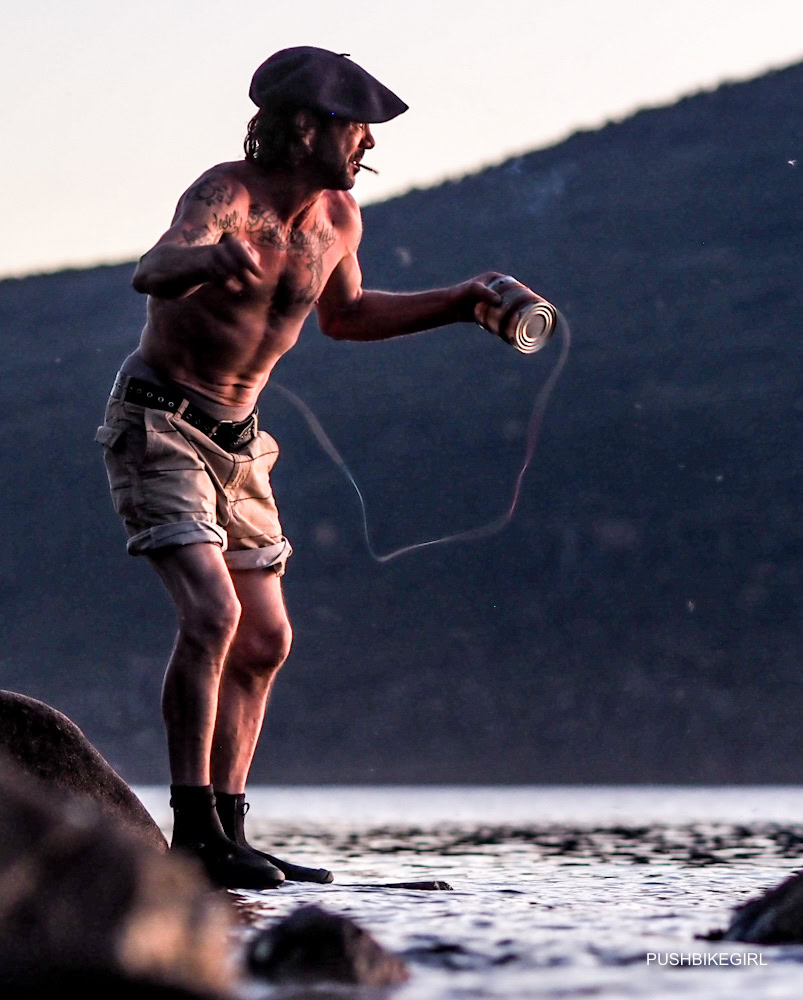
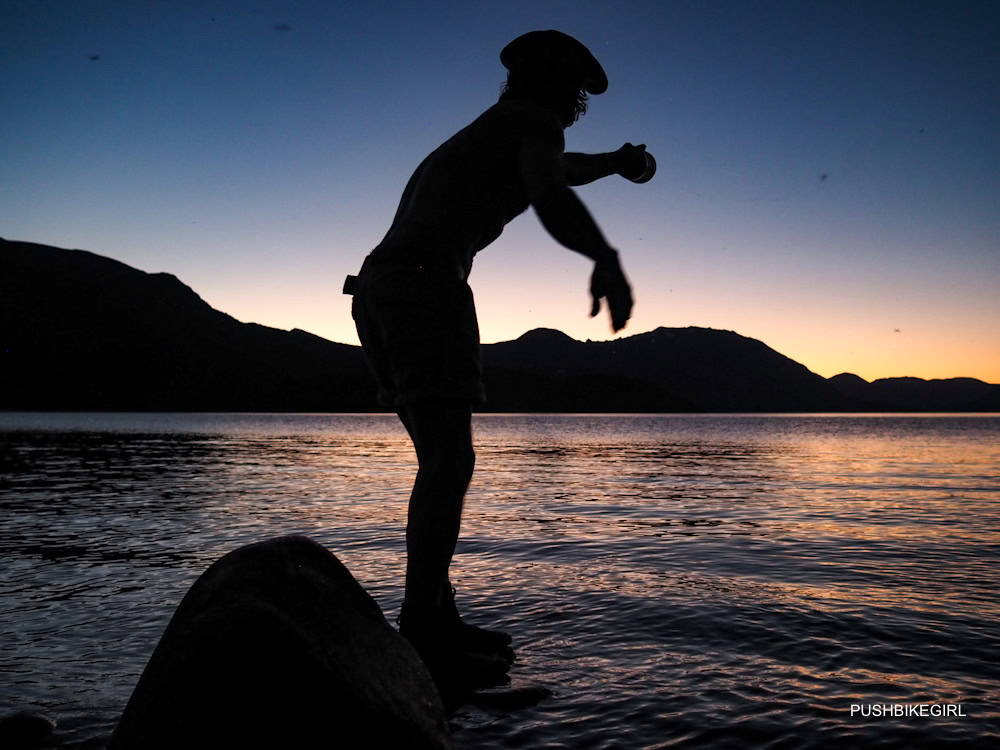
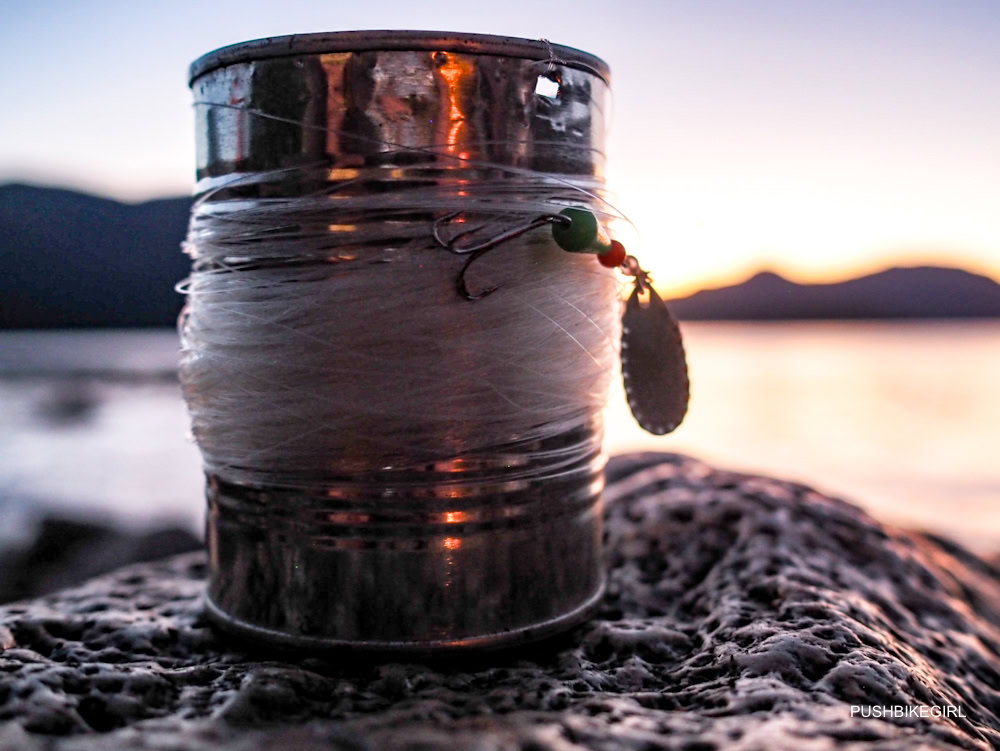


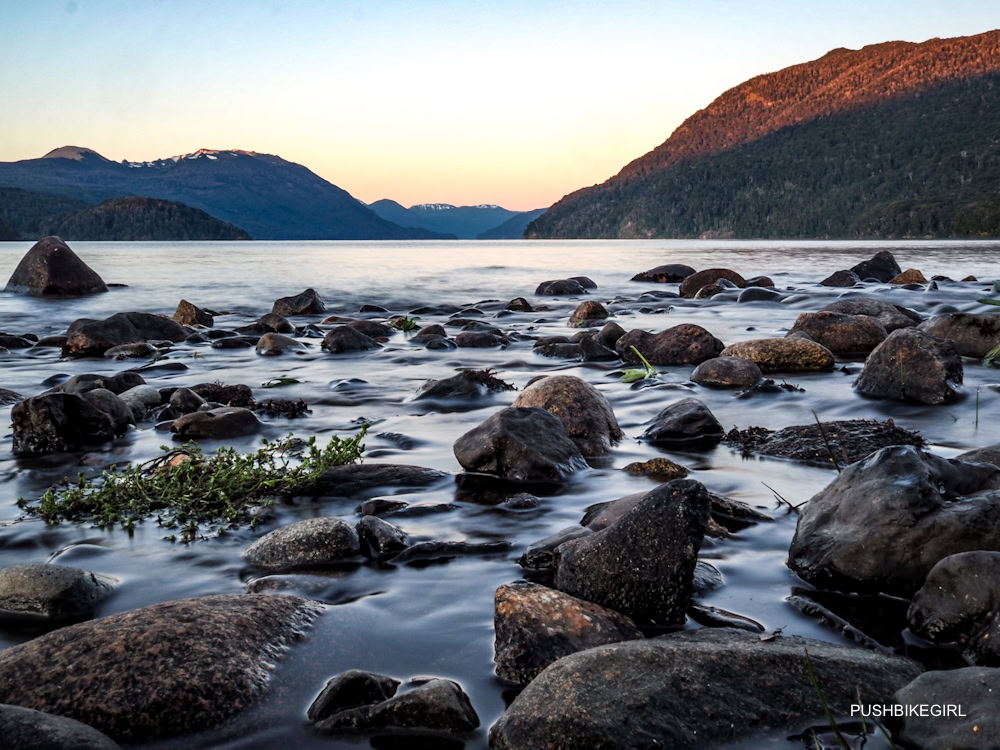
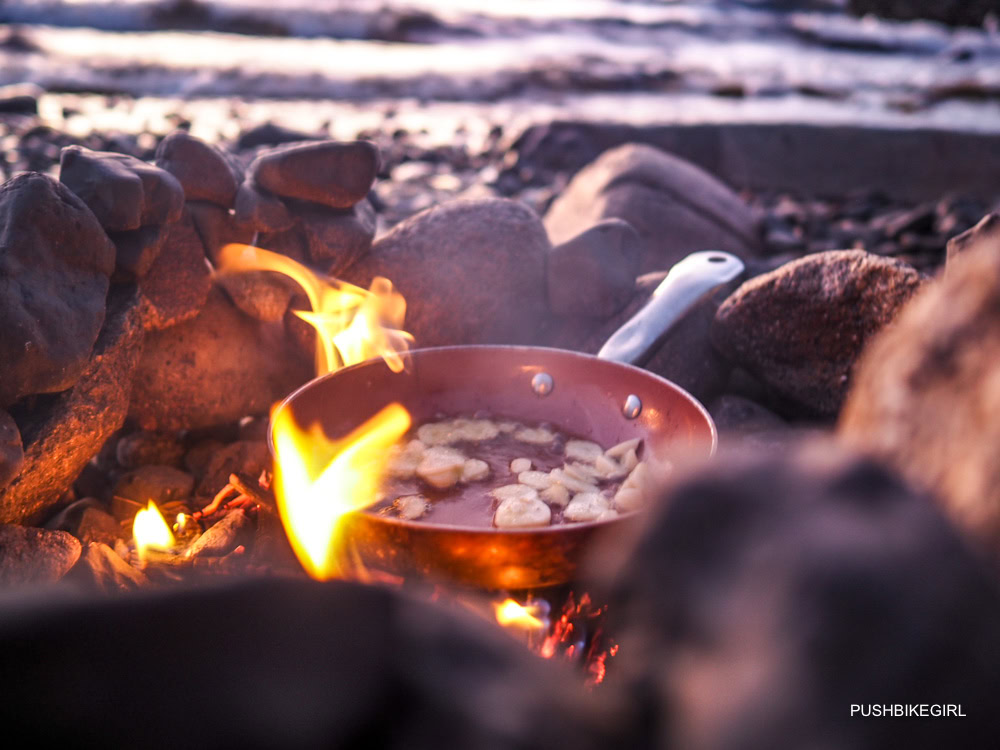
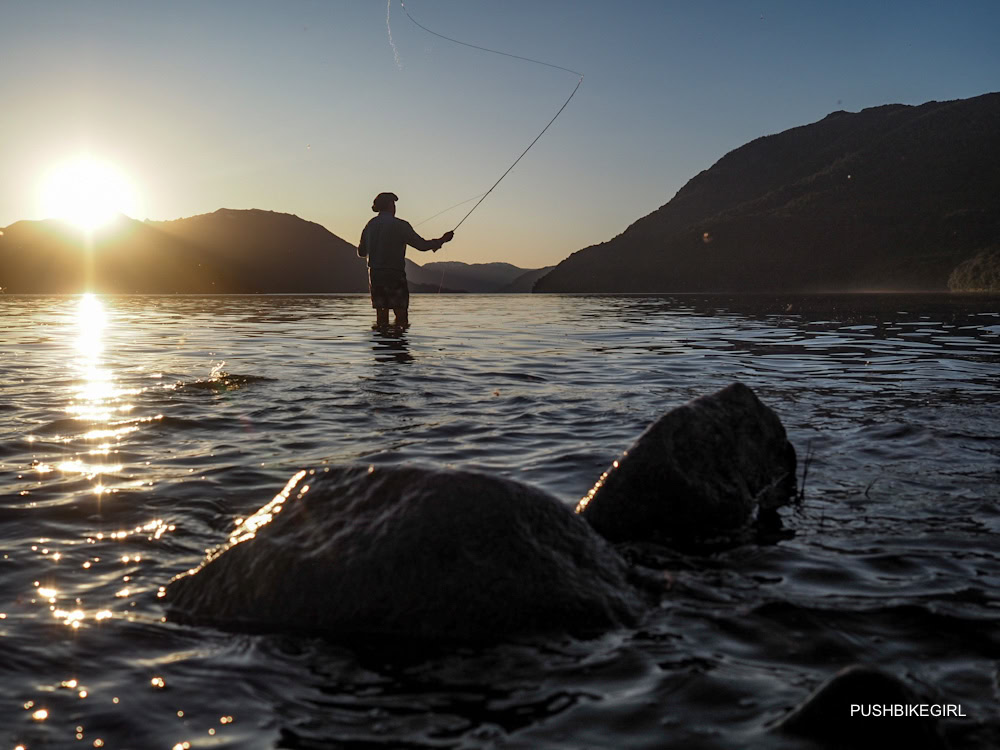
Butch and I are having tea in a café when an Argentine approaches me and speaks to me in good English.
Eduardo is married to Marion, a Dutch woman, and runs a guesthouse nearby, called La Holandesa.

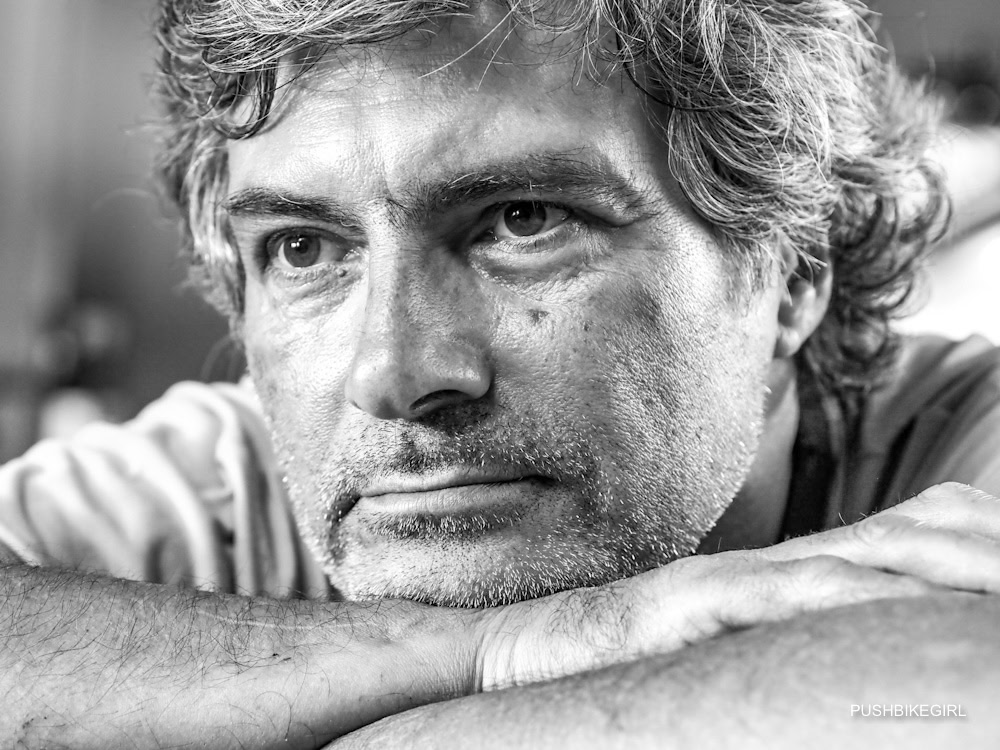
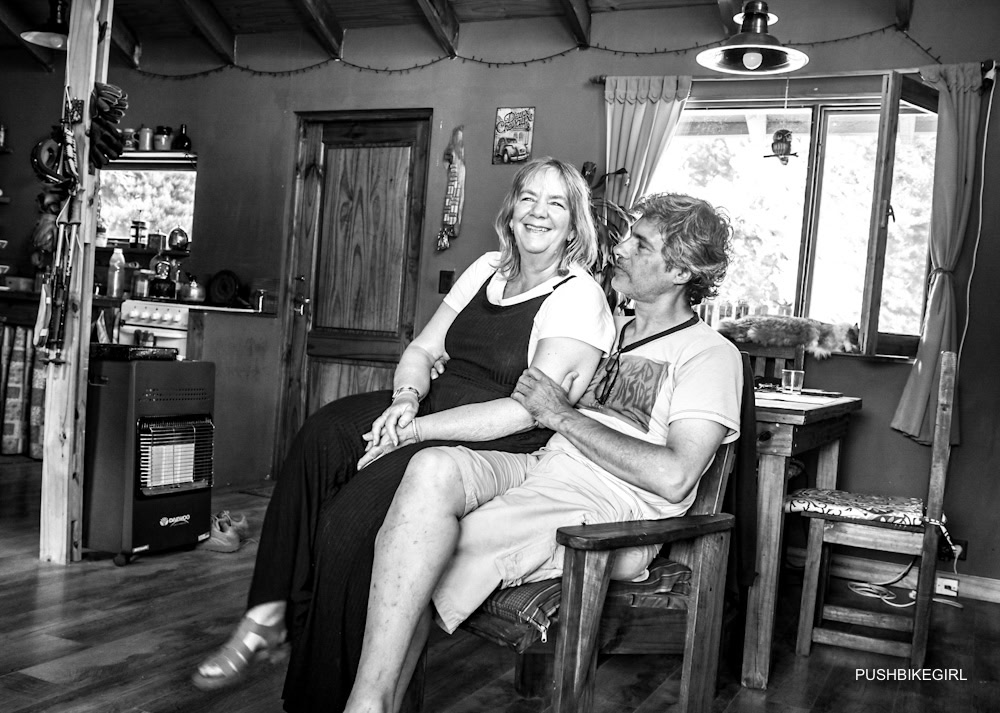
We become friends, and they let us camp on their property. Not just once—twice, in fact—and each time we are welcomed with big smiles. We cook together, chat, visit their friends, or go shopping in town. In short, we reconnect with people.
Marion listens to Dutch news every morning, and Eduardo shares many anecdotes about Argentina. The atmosphere at their place is international, not very South American. As usual, Argentina feels quite European.

On the road again, we meet a Chilean cyclist who sets up his tent in the same spot as us. A nice evening—although we barely speak, we still somehow feel connected, as he, too, is living the outdoor life.




I want to see penguins, so we drive the long way to the Atlantic coast and struggle with the wind like never before. The Pampa surrounds us. The world-famous Pampa, which not many people personally know but always mention in conversation.
And yes, the Pampa is exactly what we imagine. At the end of the world!

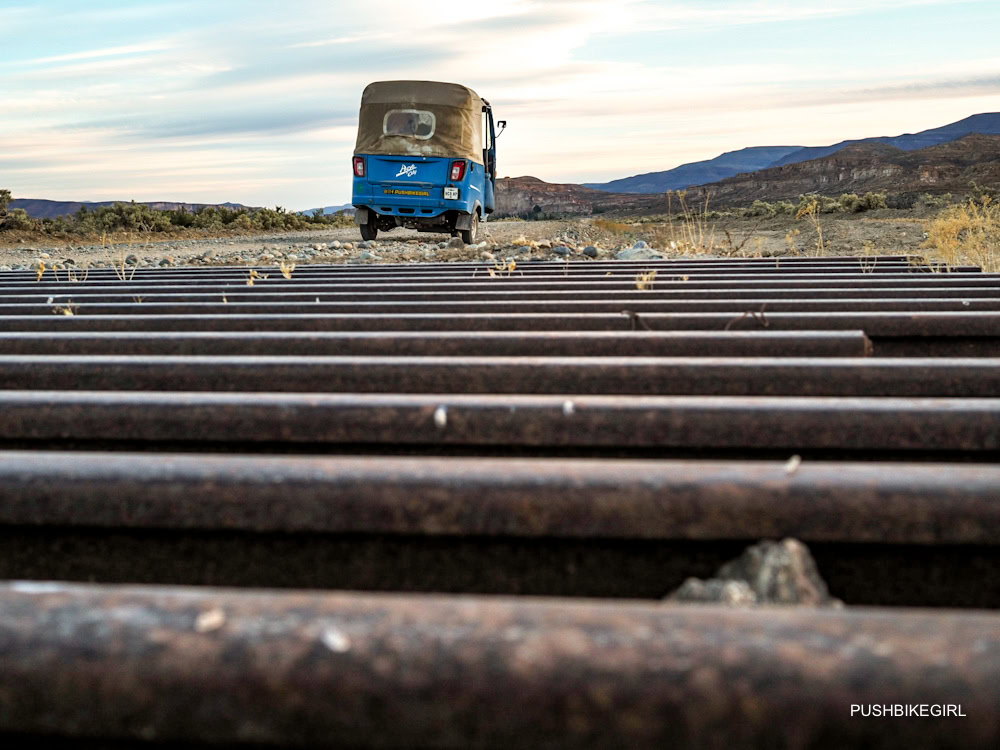
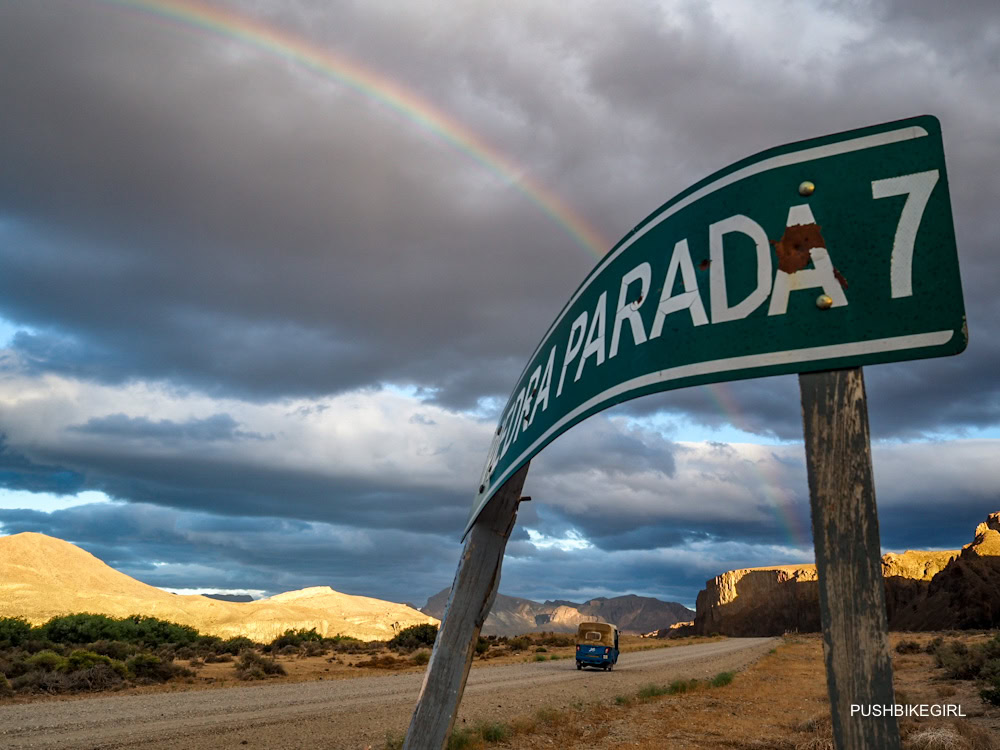
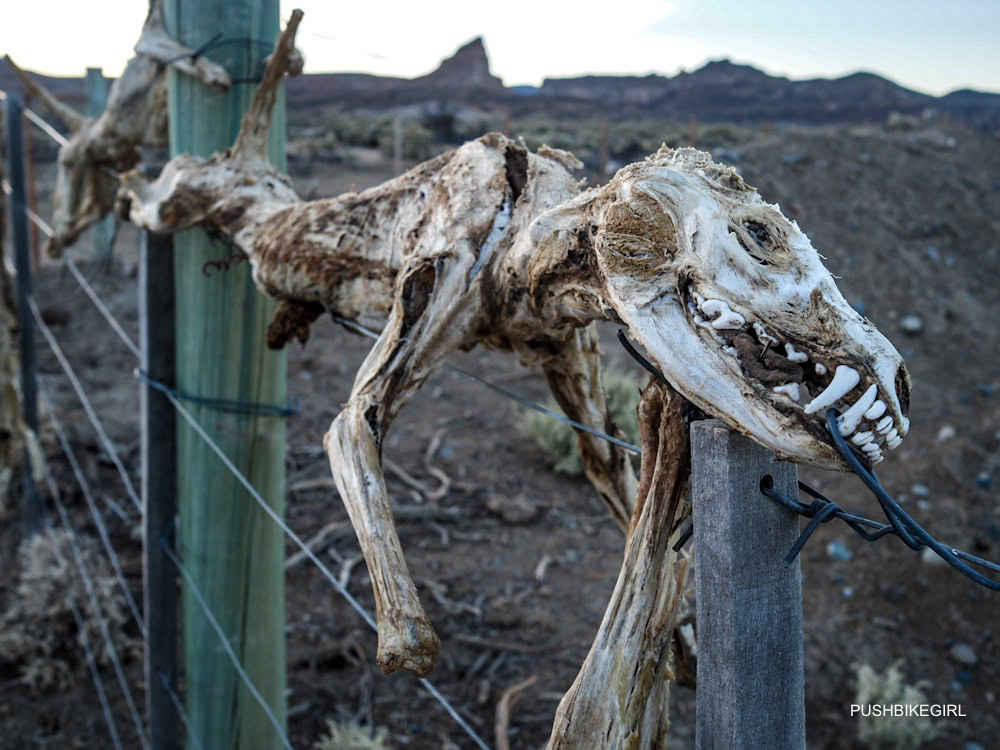
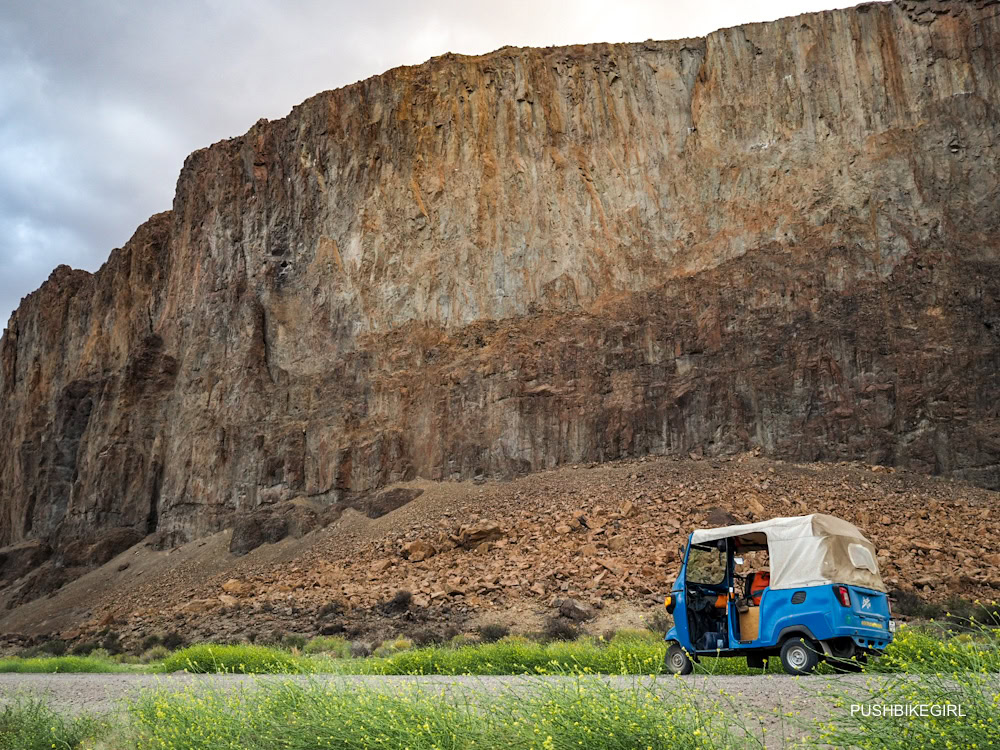




The drive there is impressive because, of course, I don’t take the direct route but instead meander through canyons and ravines as I slowly make my way toward the Atlantic. Magnificent landscapes and no people in sight. Simply amazing.
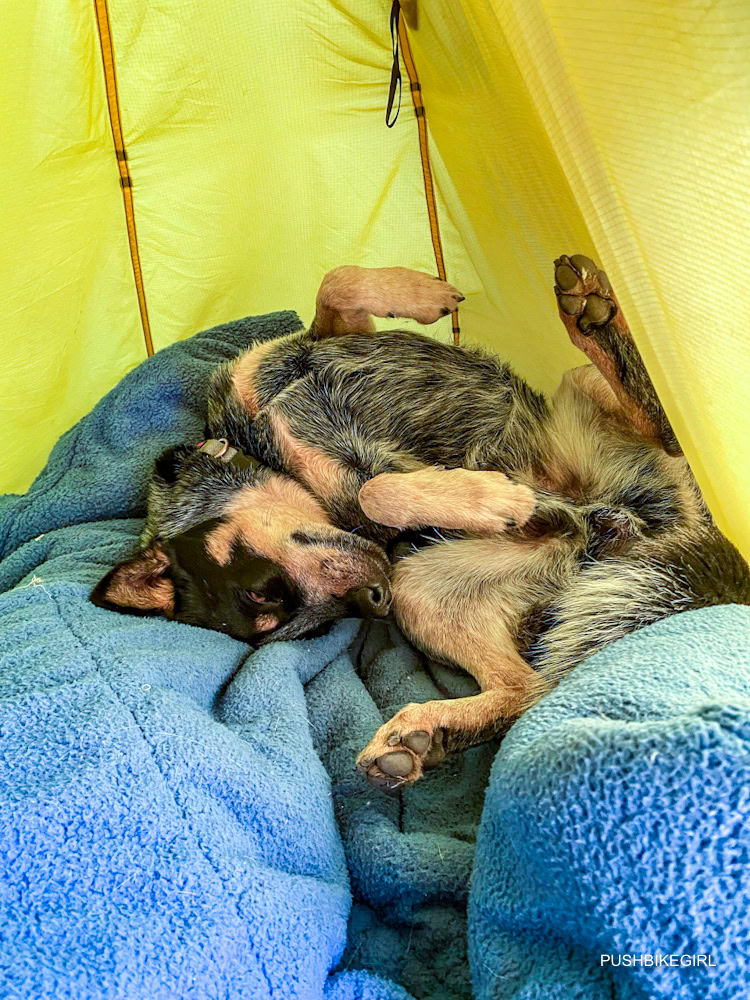

The area around the penguins, however, doesn’t appeal to me much. The people are different. The wind blows like crazy, and I don’t feel particularly comfortable here.
But then I meet two incredibly friendly French people, Marilou and Sylvain, and camp right next to them by their bus so that Butch and I can sleep a bit out of the wind. It didn’t help much, as the wind is brutal, but it’s better than having no wind protection at all.
Unfortunately, I lose my jacket while setting up the tent. It’s caught by the wind and is gone for good.

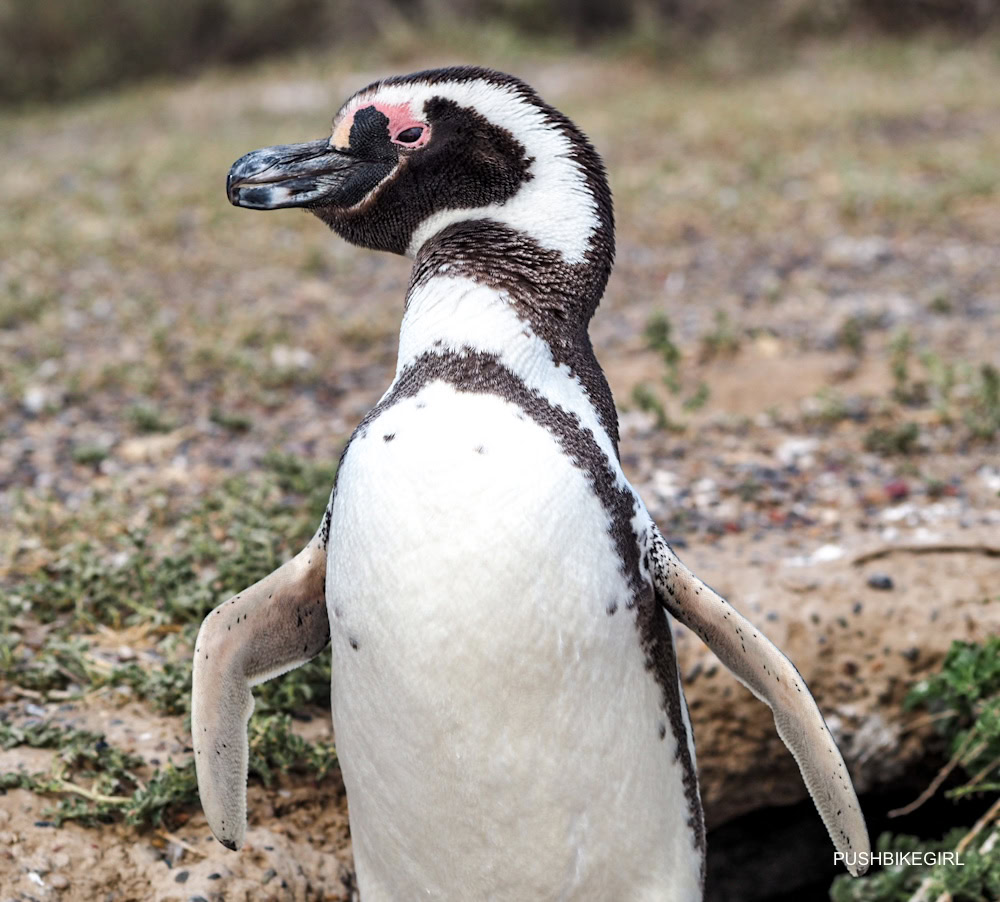

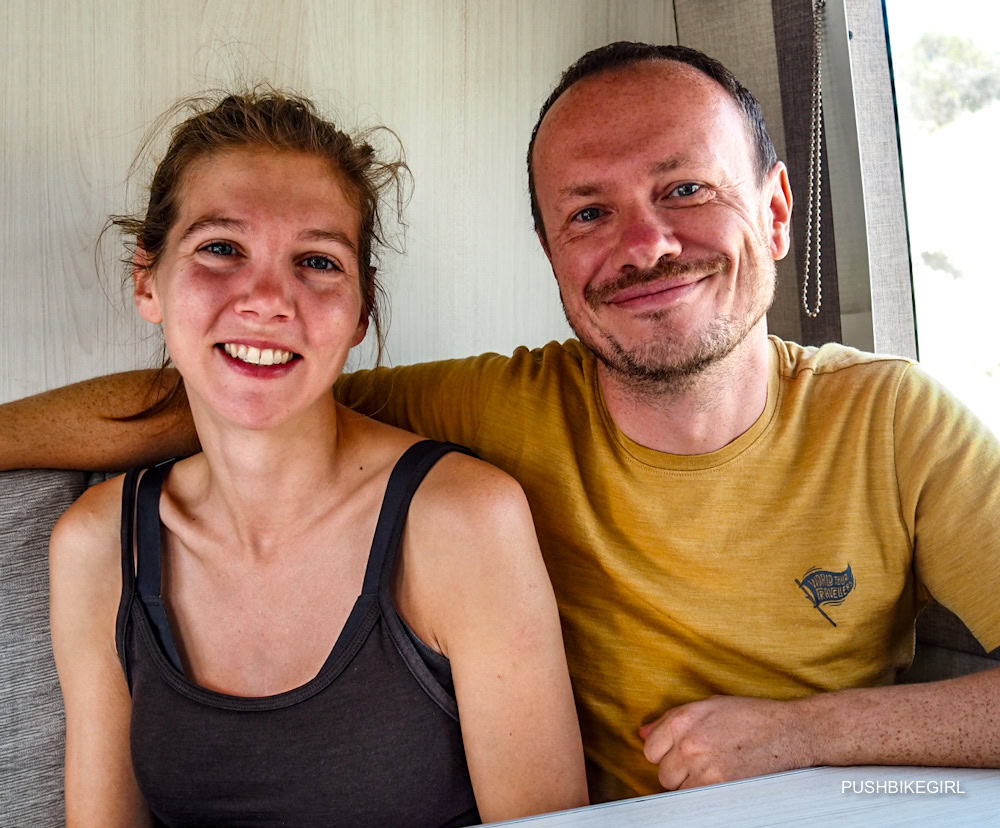

Back in the Andes, we meet Andrea and Mike, who kindly bring me my debit card from Germany, as mine expired at the end of December.
The two of them have been traveling for years in their huge Mercedes van, and a few weeks ago, I spent an evening with them by a river, exchanging stories from the road.

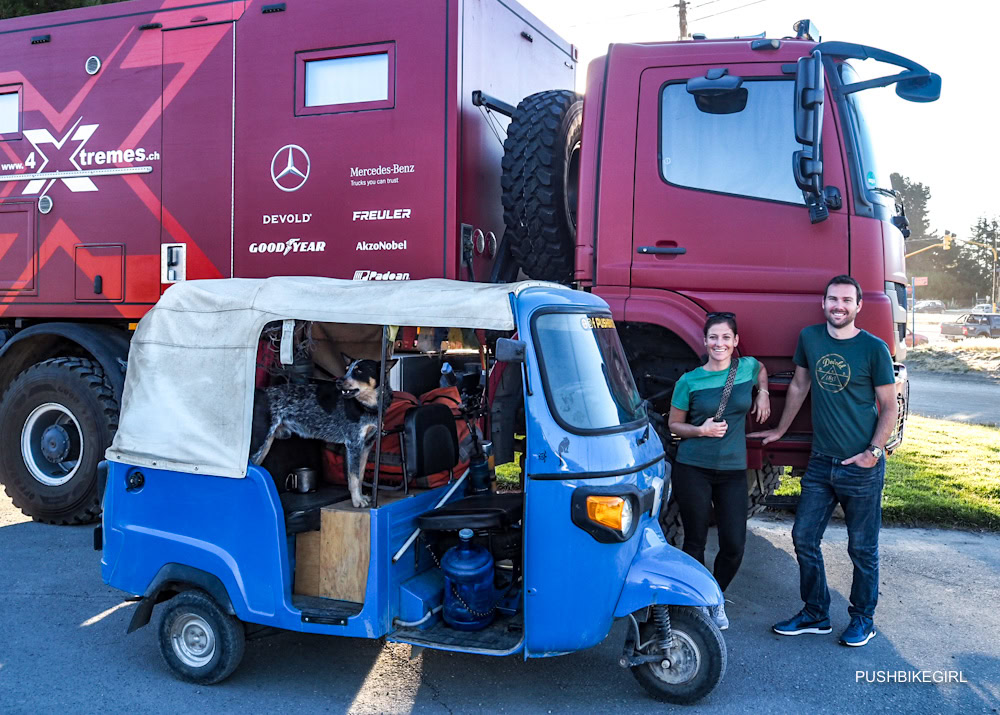
So, I’m really relieved that they visited home, brought my card, and also took the time to meet up with me again.


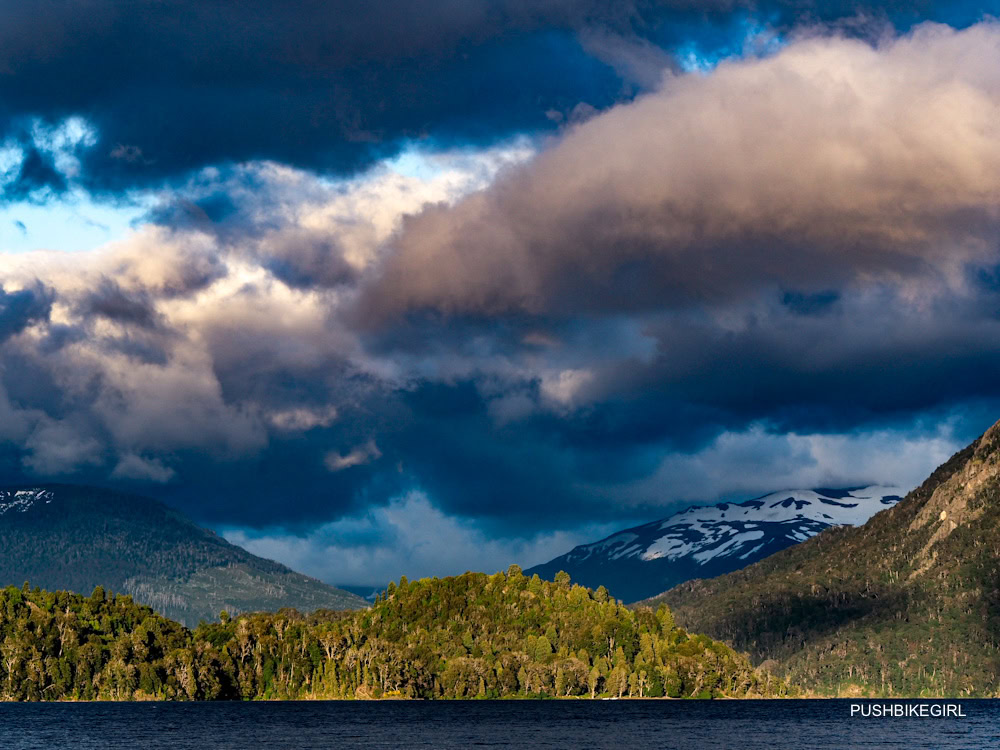

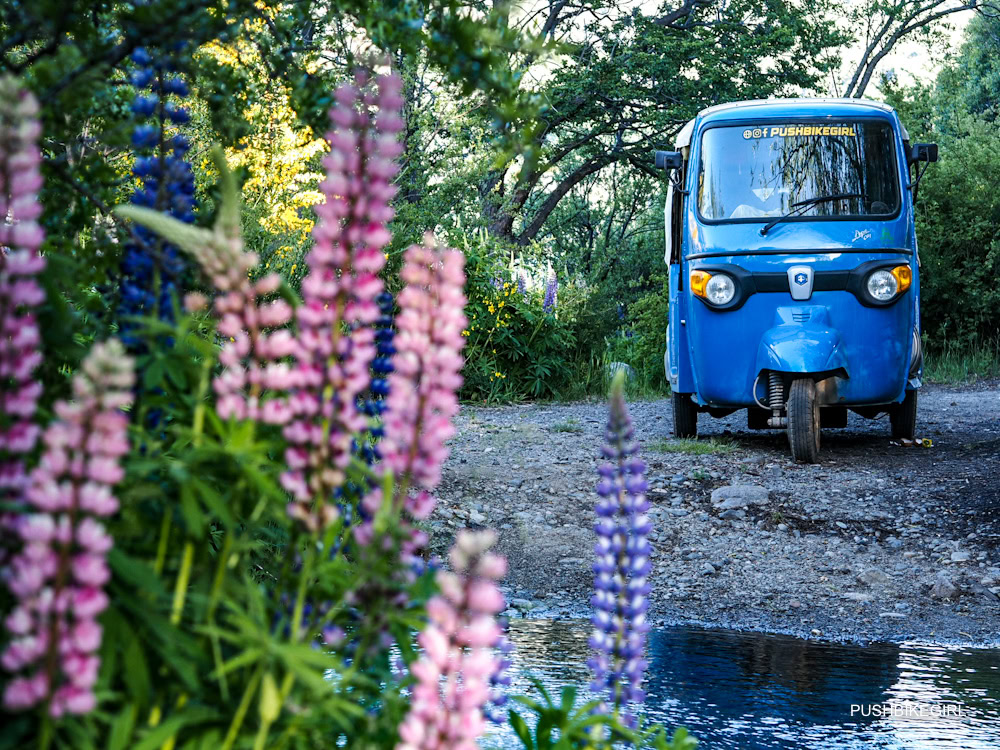
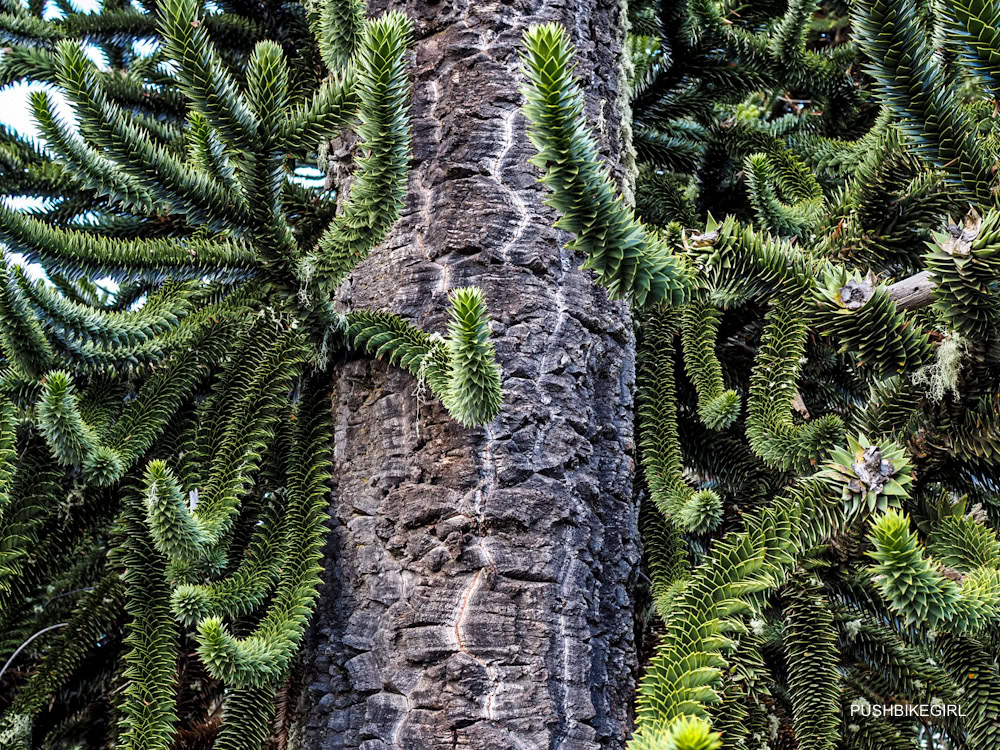
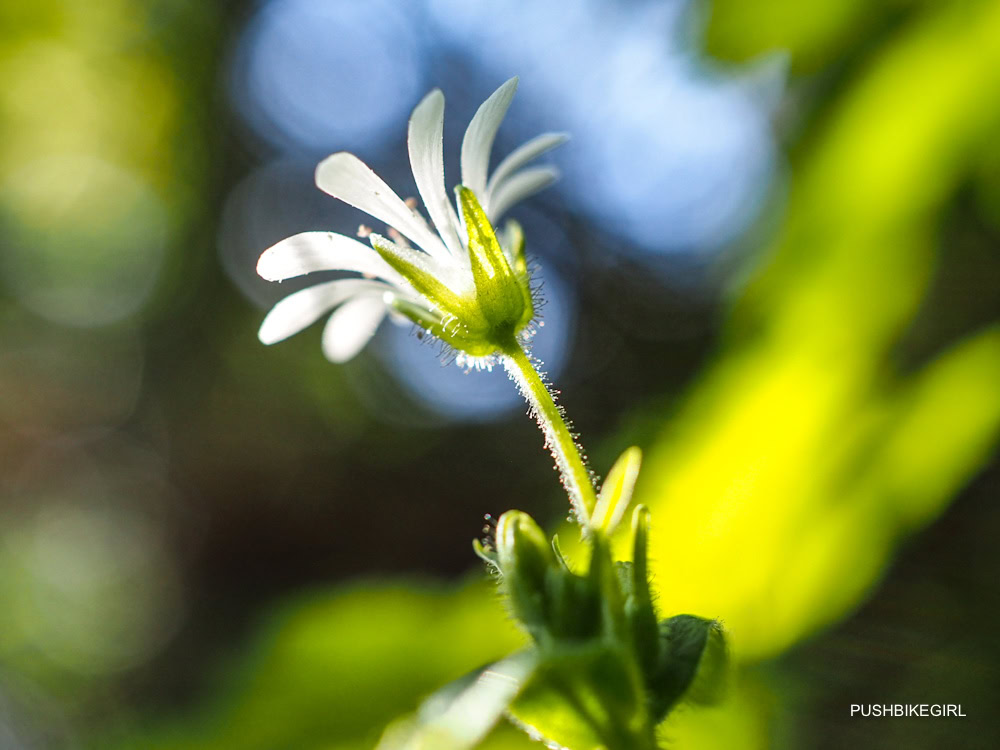
Unfortunately, my visa is up, and my anxiety grows as I realize I have to go back to Chile. Argentina has been incredible, both the people and the landscapes, and I really don’t feel like dealing with Chileans, but there’s no way around it—I have to leave the country.
To make it short: Once again, I face nothing but difficulties. I actually want to leave for Argentina immediately, but I’m not allowed to because, of course, I don’t have some document I supposedly need.
This time, I get absolutely nowhere and have to turn back at the border, accepting that I need to figure out a way to re-enter Argentina. I start to entertain the idea of leaving South America altogether.
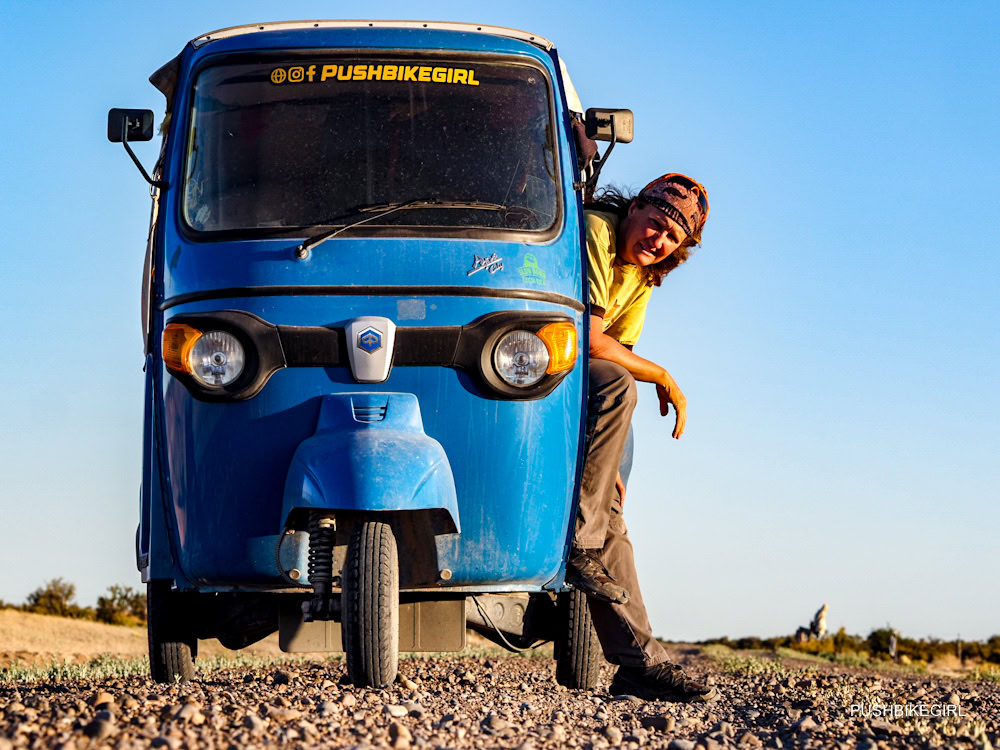
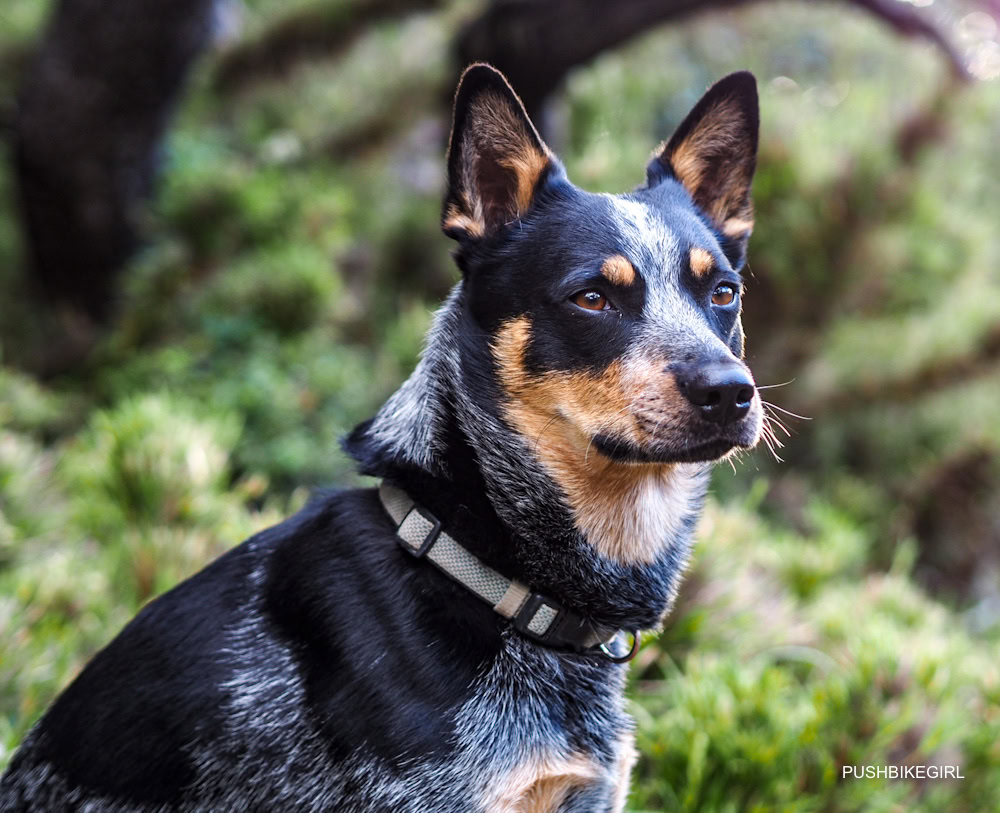
I really don’t feel like driving all the way back north to get to Bolivia. It’s too far and too boring for me.
The Tuk-Tuk is fun, and for long stretches, it makes sense to have a motor, but it’s just too easy, too unadventurous, and ultimately too dull. You just sit in a vehicle and go from viewpoint to viewpoint.
Yes, it’s all nice and pleasant, but I believe anyone who’s earned every kilometer under their own steam will ultimately be unhappy with a motor.

On the way to Talca, we camp in an eucalyptus forest. At 1 AM, a car pulls up, and a few guys get out. Flashlights sweep through the forest, and the light hits the Tuk-Tuk.
Soon after, I hear a shot, and then another. I press myself as flat as I can against my sleeping mat. Butch jumps at the first shot and, surely sensing my fear, stays calm and doesn’t move on the mat, which makes a lot of noise when we shift on it.
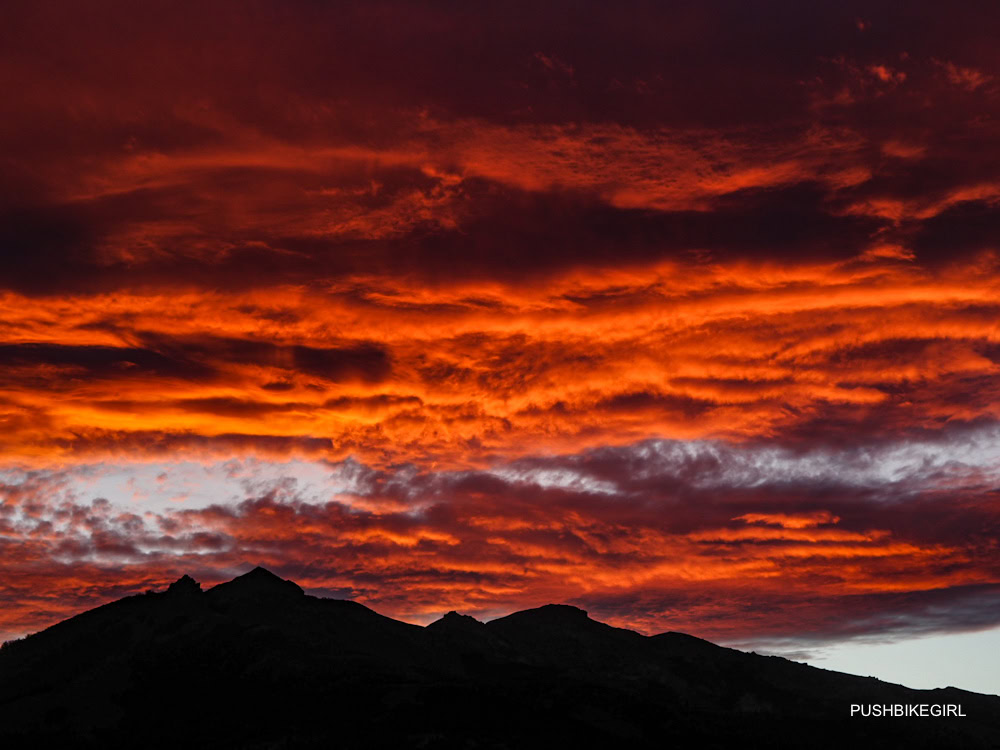
The next shots ring out, and I nearly wet myself from fear. I keep hearing male voices, fortunately moving further away from us. The shots grow quieter, and eventually, all goes silent. They didn’t spot us. I have no idea what they were after or who or what they were shooting at.
All I know is, I don’t sleep a wink all night, and when dawn breaks, we pack up quickly and head out.
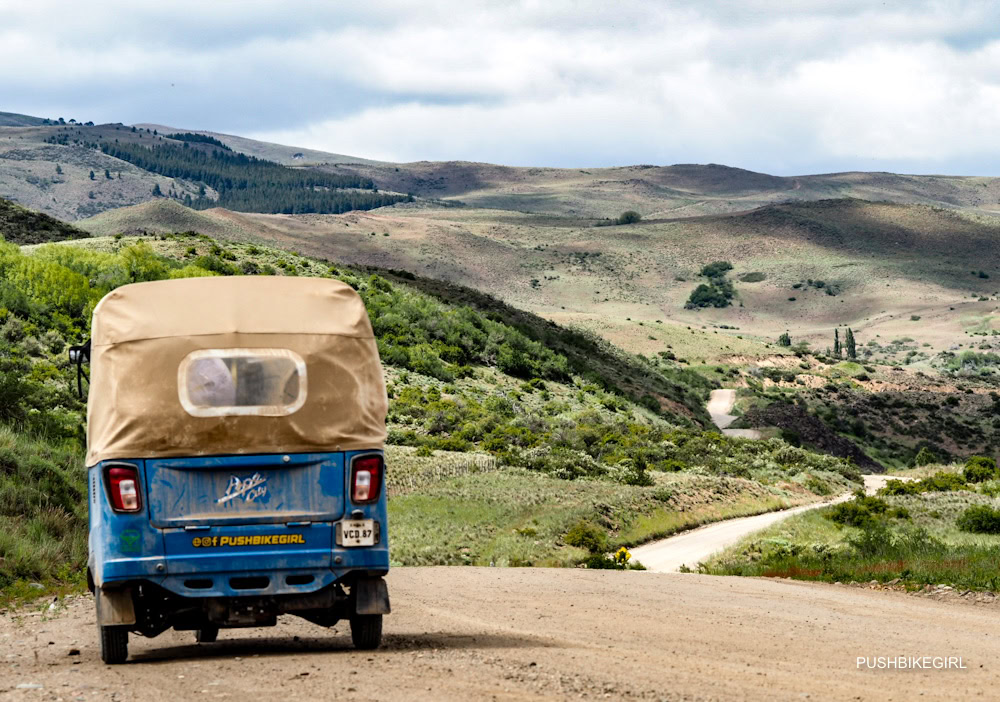
Pancho, a friend from Santiago de Chile, where I spent a month living in a shared apartment, offers to sell the Tuk-Tuk for me.
While I’m staying in an AirBnB in Talca, preparing for my departure, my Chilean stay ends with a visit from the police because the AirBnB owners try to scam me and demand ridiculous amounts of money for the room.

When Pancho drives us to the airport, I don’t feel it’s a mistake to leave the continent. I really just want to go home, and above all, I want to get out of Chile as quickly as possible.
A good time comes to an end, and a new one will begin, but this time, it will be very different—and I’m really looking forward to it.
Nope, we are not settling down 🙂
If anyone is interested in buying a Tuk-Tuk, it’s for sale in Talca/Chile.
Goodbye, South America.
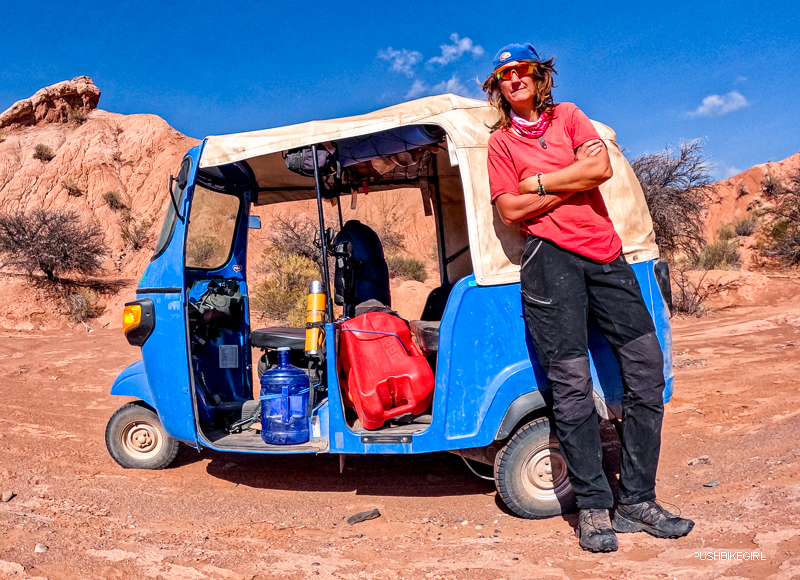
Tip
Butch and I live off this blog.
We are therefore very happy if you follow and appreciate our adventures.
As always, you’ll receive a postcard for your tip.
BIG THANK YOU
This way
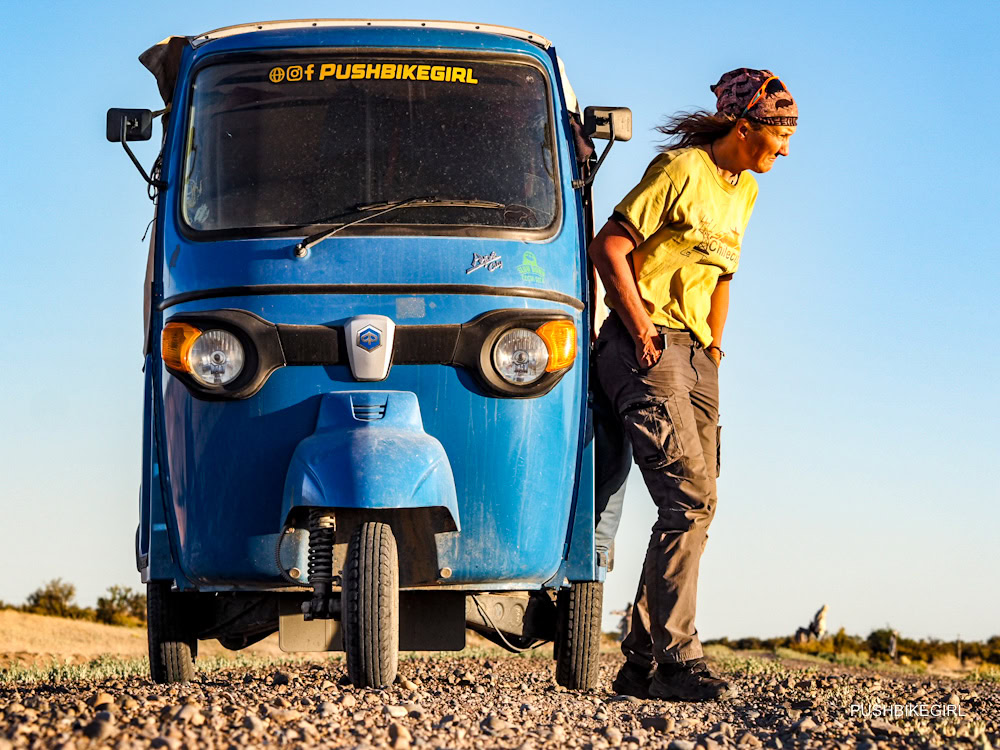
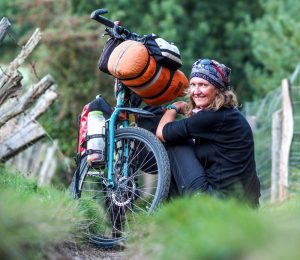


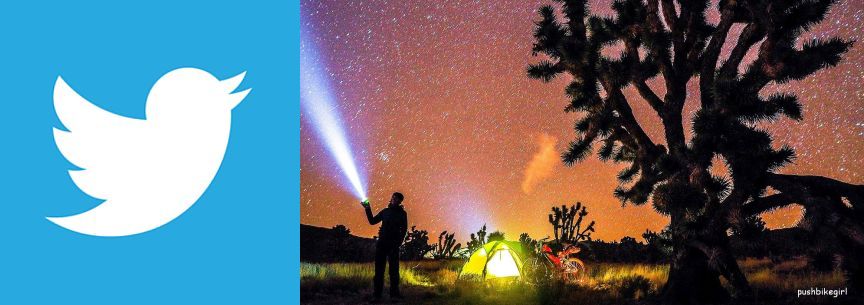


Heike, made my day to see you had (finally) let the world know you were still alive!!! But, I have to say it was worth the wait.
Having followed you, I know South America could have treated you better, at the same time I know my heart would have soared to have camped in your camp spots, and experienced your encounters along the road.
Loved the moment you took us back to India, what a joy it must have been for you to catch up with Alex, and so cool his parents and wife were part of the treat.
Wishing you a great start to whatever and where ever your next plan takes you, and your beautiful boy.
RB
Dear Ronny,
Thank you for all the great comments you’ve shared with me over the years. I know you’ve read every article I’ve posted, and I also know how much you love the outdoors yourself. More than that, I know that your heart is with us no matter where we are. It truly makes me happy to have you as a friend.
I hope we can meet again — somewhere, someday. Take care of yourself,
The Team
so good to see a post from you & Butch! whatever happened in SA,I hope you are OK now! As always your photos are the best on internet! I’m getting thoughts now of escaping U.S. on my bike!things are so messed up here!the world is bleeding & getting smaller,I worry constantly,but true adventurers like you keep me going!take care of yourselves!🧡💛🖤
Wow, big thank you for your great compliment!
I can understand your frustration and fear – but sadly – worrying won’t make anything better.
Keep exploring – it’s still worth it.
Hugs from us
Thank you for writing again. I was so worried and was thinking the worst things might have happened.
Bring on the next adventure.
We all need it.
I am sorry Les,
didn’t want to scare you.
Yes, we won’t stop exploring. More soon.
Best greetings Heike and Butch
Very happy to hear an update, with fantastic photos as ever. I see your Instagram says you are back to walking – I hope we can have some more updates soon 🙂 It’s always a pleasure to follow your adventures.
Dear Vinnie,
Thank you very much — every comment means a lot to me today. I was uncertain and doubtful about whether blogging is still relevant or if it’s become outdated. Reading all the comments — both in English and in German — gives me a huge boost for future updates. Yes, there is more to come.
Happy greetings Heike and Butch
I’m very pleased to have given you some encouragement in that case! Travel blogs can give us SO much more than apps like Instagram, where constant scrolling makes everything feel cheap and easy and forgettable, and much of the meaning disappears. Those apps leave no time to linger or to think, or even really to feel. One second you’re following someone’s bike tour in Africa, the next second you’re being shown someone’s vanlife in the USA, and the next, someone’s cat making a stupid noise. Our brains aren’t wired to skip around like that.
Plus, I still sometimes go back and read your old posts from many years ago when I’m in the mood to be transported to Asia or Africa. I do the same for blogs like Loretta Henderson’s, even though she finished her cycle tour ten years ago(!!). I think it would be a real loss to us all if travel blogs were all replaced with flashier apps, and a loss to me personally if your blog fell silent.
Looking forward to what’s next.
You made my day Vinnie!
THank you very much!
Hugs from us
So great hearing from you and your pictures as outstanding as ever. Hope you will have a great time at home and cant wait to see what you are up to next . Just visited Lori that you met in Baja California som years ago.
Dear Lars,
If I’m not mistaken, you’re Lars from Sweden, right? Glad to hear you’ve spent some time in beautiful Baja California. I hope Lori is doing well. Wishing you happy times ahead — and thank you for taking the time to read about our adventures and for staying in touch.
Heike and Butch
It is really really touching to hear of your reunion with Alex after 30 years old. I guess the journey in India meant a lot to both of you.
I always love to read your travel blogs because you always bring us quite different perspectives to this world.
I have actually started my cycling-around-the-world journey for about 3 months. From Hong Kong to China, now in Kunming at the moment. I once looked back your travel stories in China almost 10 years ago. It was very interesting to find the changes in places over a decade.
I always hope that I can be as tough as you are! You are a greatly inspiring traveler!
Lastly, I wish you and Butch good health and full of love and energy wherever you are.
With lots of love. 😊❤️
Yes Shan, India meant a lot to us.
Great to hear you are pedaling through China and of course it must have changed tremendously in those 10 years.
Thank you very much for your kind words.
Tailwind for you and hugs from us and take care of yourself.
Heike and Butch
I’ve been thinking about you this week- and here you are with your amazing photography and stories. I said goodbye to South America 26 years ago- it stays with you.
Cathi –
thanks for the lovely note.
Wishing you well.
Heike and Butch
What a beautifully written post! Your photos are amazing! I love following your journey! While, your departure was bittersweet, the pleasant memories last forever. The discord is easily forgotten. Wishing you all the best for your next adventures!
Dear Gabriele,
It really feels good to receive so many positive comments about this article and my pictures. I almost gave up on the blog because I thought it had become outdated, and that no one was interested anymore — everyone just wants to watch videos these days.
I spent a long time thinking about how to move forward, and in the end, I decided to continue blogging.
It’s incredibly reassuring to know that so many people from all over the world missed me and are excited about my new article.
THANK YOU for being part of this journey.
If it were always sunshine, it would get boring after a while. Adventure life comes with problems and critical situations. But in the end, everything is forgotten, and what remains are the memories of the wonderful people. And there were so many of them.
A heartfelt thank you to you. All the best from us, and see you soon with more pictures and stories from the road.
Heike, I have been following you since 2014 when I came across your blog as I was researching a trip to Iran. Since that time, I have eagerly anticipated all of your posts and always feel excited when a notification of a new one appears in my inbox. I especially love your photos of people and the stories of your meeting with them. I wish you all the best for your future adventures with Butch and I sincerely hope that you keep this blog going!
Big thank you Allison for your kind words.
It makes me very proud.
All the best, Heike and Butch
Have a great day
you too
Your photographs of humans are as amazing as those of nature. I read you more occasionally, as I follow you on Facebook, not being that much on Instagram. I started following you when you got your Heeler friend; I have two myself.
Happy travels!
THank you so much Gitte!
Heelers are the best 🙂
All the best Heike and Butch
I’m surprised all the places you’ve been with a Turk-Tuk, amazing.
I’m sure you will find a way to keep doing things you like, maybe a little rest
With friends and family before ?
Hi Rino, the Tuk Tuk is an amazing vehicle – I was surprised myself.
Yes, we spent a few months with family and friends.
Cheers Heike and Butch
Heike! Que bueno volver a leerte! Sabes lo que me gustan tus historias y sobre todo el ojo que tienes para la fotografía! Te mando un fuerte abrazo, saludos!
Hola Juan, ¿que tal?
Me encantó tu país y todos los encuentros por el camino, incluido conocerte a ti y a tu encantadora esposa.
Saludos cordiales y todo lo mejor, y muchas gracias por tus grandes cumplidos…
Lamentablemente, he perdido la camiseta que me regalaste ;-(
Saludos Heike y Butch
Reading your blog made my day!! So, happy you are ok. What a beautiful adventure. Thank you for sharing it. We moved to a new farm north in Washington state. Where are you now? and where to next? I hope this year has treated you well. And hope Butch is awaiting for his new adventures. May the new year bring you much health and happiness.
Where those wolves that were strung on the fence? Did you see any sheep?
Please keep writing and photographing. We all need these adventures.
Dear Liz,
Sorry for the late reply, and thank you so much for reaching out.
No wolves, but I guess these are dogs. Not sheep, but cattle.
How is your new home?
We are currently in southern France. We went home for a few months to spend time with family and friends and are now back in southern France to continue walking.
Merry Christmas to you both and best wishes from us!
Hi Heike, to have found Alex is extra ordinary! What an adventure to decide finding him, and then, to actually find him!
Also amazed at Butch staying calm when it was the smartest decision to do so (gun shots, were they ‘hunting’ in a drunken state?)
Beautiful photos!
Greetings Cindy
Hi Cindy, hope all is well with you.
Thanks for your comment.
Yes, finding Alex was wonderful.
I was so relieved that Butch stayed calm!!!
I have no idea why those guys were out shooting.
Hugs from us!